Study: The Book of Ecclesiastes
By Tony Derrick
These articles were published from February 2020 through June 2020 in the Personal Letter, and August 2020 through April 2021 in the Levitt Letter.Part 1: Originally published in the February 2020 Personal Letter.
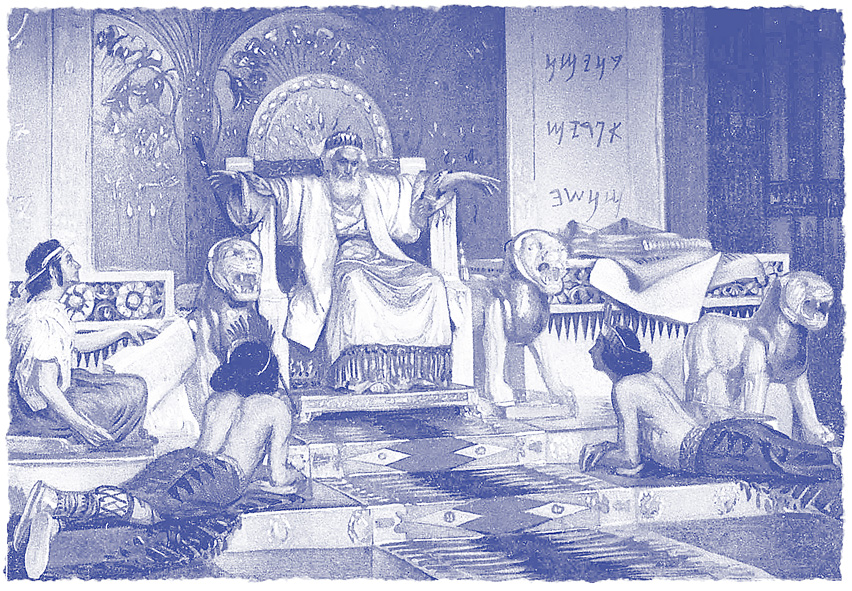
You may have guessed that our Bible study for the next few months will focus on the Old Testament (Old Covenant) Book of Ecclesiastes. Examining the futility of life may seem a counterproductive way to begin the new year, but the overarching theme of Ecclesiastes is really “the futility of life without God.” Solomon paints a clear picture of that lifestyle with his unique and ironic writing style.
We will accept the Jewish tradition that Solomon, King David’s son, authored Ecclesiastes, even though Solomon’s name is never mentioned. Instead, Solomon refers to himself as “the Preacher, the son of David, king in Jerusalem.” In fact, “Ecclesiastes” means “Preacher.” Let’s listen to the Preacher.
First, let’s jump forward to Chapter 2 where it clarifies what is going through Solomon’s mind as he pens this journal. Follow with me in your Bible at 2:17–18,
“Therefore I hated life because the work that was done under the sun was distressing to me, for all is vanity and grasping at the wind. Then I hated all my labor in which I had toiled under the sun, because I must leave it to the man who will come after me.”
This is the king of Israel expressing his despair about life. It’s hard to imagine a man who has everything — and I mean everything at his disposal with the snap of a finger — being so very distraught about life.
Before we return to Chapter 1, do you detect a recurring theme in the two verses just read? That’s right, “all is vanity — under the sun.” Keep those thoughts in mind as we walk with Solomon through his view of life … under the sun!
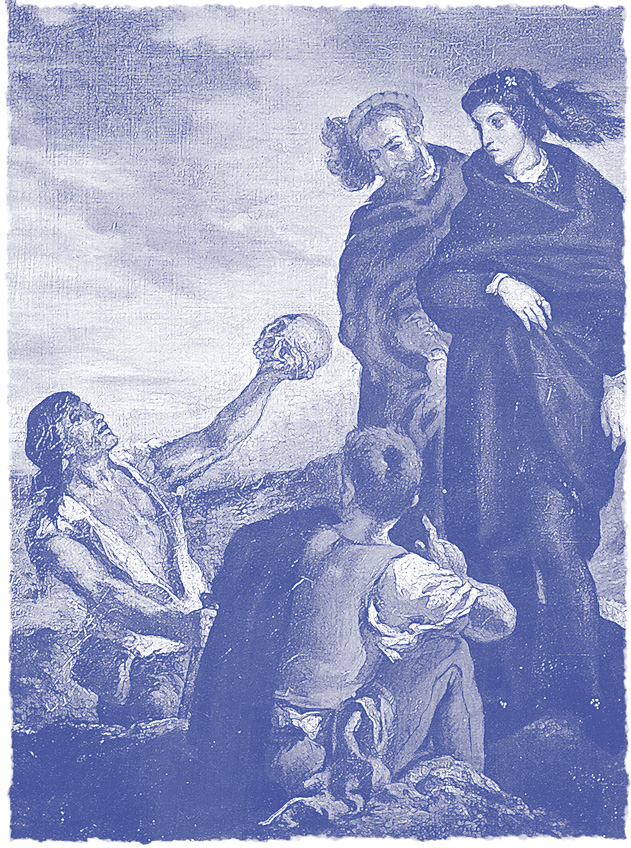
SOLOMON SEES LIFE AS VANITY
Ecclesiastes 1:2 expresses Solomon’s grievances in this way: “Vanity of vanities … vanity of vanities, all is vanity!” The Hebrew word havel (translated here as “vanity”) means “vapor” or “breath.” It should remind us of our study in James, where chapter 4 (March 2019) compared life to a “vapor” — it appears and then vanishes.
Why couldn’t Solomon find purpose? Remember the phrase “under the sun” from chapter 2? It should remind us of the phrase “under the circumstances,” often used as an excuse for not living life to its fullest. It reminds me of a defense repeated by the chubby, burr-headed Stooge (of The Three Stooges), Curly, who would claim, “I’m a victim of circumstance.”
If life is viewed only by what we see and the circumstances that surround us, then, yes, all is vanity, hollow, worthless. But, the life surrendered to the God of the universe brings purpose, blessing, and peace in this often brutal world. Wouldn’t you agree?
As Believers (“Believers” is short for “believers in Yeshua/Jesus as Messiah.”), you and I are not immune to the difficulties of human existence. We will go through the grist mill like anyone else on Earth. Those of you who join me in saying “amen” to all of that have a Savior who knows our needs and presents those needs to our Father in Heaven, even when we don’t know them ourselves! Consider what Paul writes in Romans 8:26,
“Likewise the Spirit also helps in our weaknesses. For we do not know what we should pray for as we ought, but the Spirit Himself makes intercession for us with groanings which cannot be uttered.”
SOLOMON LOOKS AT LIFE’S CYCLES
Now that we’re past the first couple of verses, maybe it gets happier. Um … Nope! In verse 3 Solomon questions whether it’s worth working hard and gaining possessions and wealth. What’s the point? In verse 4, he tells us that “one generation passes away and another generation comes.”
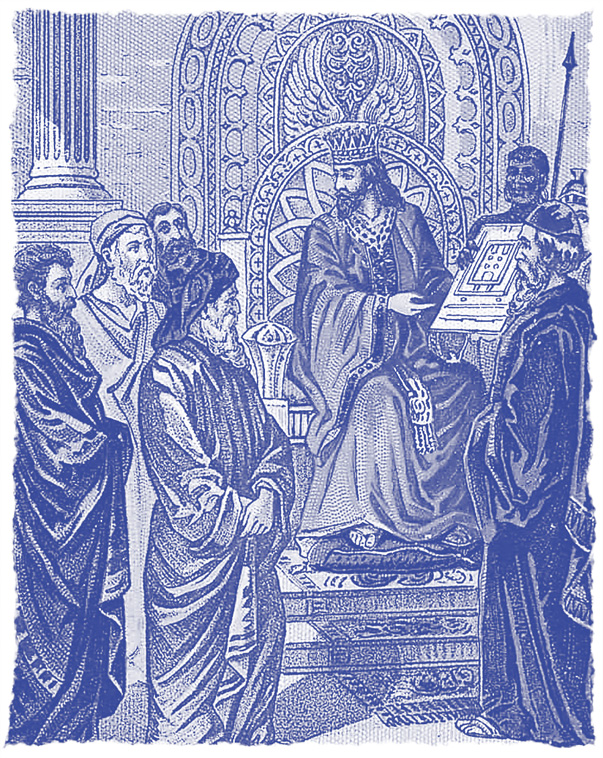
People come and people go. What’s the point of this life? Think back over the decades of your own life. In my lifetime, great leaders, entertainers, comedians, and spiritual giants have come and gone — from JFK to Billy Graham. Solomon considers it a monotonous futility. Keep the trigger phrase handy: “under the sun.”
Solomon addresses the wind and rivers in verses 6 and 7. For those of you who keep track of the weather, the continuous cycle of water — evaporated by the sun into the atmosphere and then returned in the form of rain, sleet, or snow — is a monotonous cycle according to Solomon. Life under the sun is vanity of vanities — worthlessness of worthlessness!
SIGHTS AND SOUNDS IN SOLOMON’S LIFE
The next few verses, 8–11, call attention to the eyes and ears being unfulfilled, because as verse 9 states, “there is nothing new under the sun.” The next video game, or the next advanced set of earbuds will not satisfy. It doesn’t matter what the marketing advertisements tell you, the “new” product won’t satisfy — at least not for long. The next new gadget or gimmick or educational degree or financial achievement will not satisfy. They all are “under the sun” distractions that keep us from the one commitment that will carry us through this life and into the next life! Am I asking you to give up a successful and fulfilling earthly life? Of course not; and neither is Solomon.
SOLOMON’S OVERVIEW OF LIFE UNDER THE SUN
Before Solomon introduces himself to us in verse 12, he has set the stage: things that were, or are yet to come, have no meaning for him. At the end of the day, he would rather forget about them. Have Solomon’s words got you reviewing life in general, and perhaps some areas of life specifically? Good. That is exactly his intention in recording his thoughts in this journal called Ecclesiastes.
Toward the end of chapter one, we find Solomon introducing himself (v. 12) as “I, the Preacher, have been king over Israel in Jerusalem,” and then giving a prelude to the journey he is about to take.
Here’s how the remainder of chapter one unfolds. Verses 13–15 are like the words of an explorer setting out to improve on the experience of previous explorers. That which Solomon has accomplished in his own way, and by his own strength, has proven to be nothing more than “vanity and grasping for the wind.”
Solomon completes this section (v. 17) by looking at his successes and failures — “to know madness and folly” — and compares them all to trying to grasp the wind. When God came to Solomon and asked him what he desired most, do you recall Solomon’s reply? He asked God for wisdom. 2 Chronicles 1:10, “Now give me wisdom and knowledge, that I may go out and come in before this people; for who can judge this great people of Yours?”
Nothing informs and inspires more than the voice of experience. I pray that you will walk with me through Solomon’s Ecclesiastes journal about our life on Earth, under the Sun. Together we will discover a committed life that reaches beyond the moorings of this earthly existence.
Part 2: Originally published in the March 2020 Personal Letter.
We continue our study of the Book of Ecclesiastes, in which “the Preacher” (generally accepted to be King Solomon) pursues the elements necessary for a life with purpose. In our study of the first chapter last month, we saw Solomon realize that all his self-accomplishments, “everything under the sun,” prove to be nothing more than “vanity and grasping for the wind” (1:14). In the second chapter of his journal, Solomon sets aside his workaholic endeavors as a means to a full life and examines whether personal pleasure can provide the elusive goal.
SOLOMON’S “I” PROBLEM (2:1–11)
Ecclesiastes 2:1–11 shows that Solomon’s quest for satisfaction doesn’t lie in meeting the needs of the people, only in his own satisfaction. Let’s listen in to find out if that pursuit will give the king what he craves.
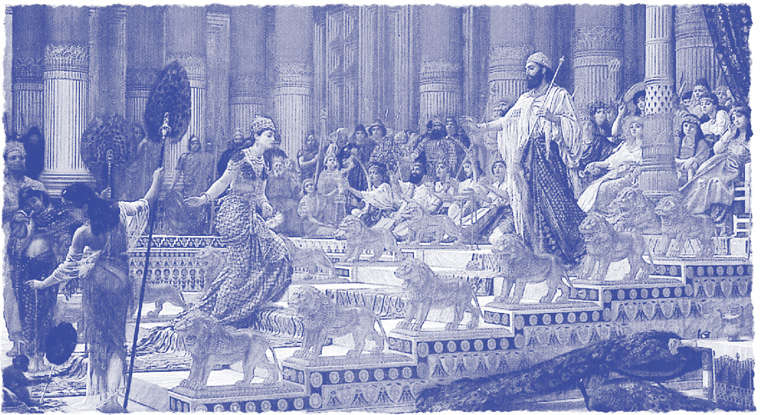
The first two verses begin with laughter and mirth. What is mirth? It is the seeking of a joyful persona. Solomon concludes that laughter is “madness.” If I were to guess, Solomon is referring to the fact that when a comedian completes his routine, he retires to a solitude where there is no laughter or applause. It is life back to the way it was; in other words, “all is vanity.”
His next test of pleasure, in verse three, is as a wine connoisseur. Let’s be clear; Solomon was not a drunk. He was not a back-alley wino trying to drown his sorrows. He was a well-educated king of Israel who wondered if bottled spirits might offer some relief from a mundane life.
Was that the answer? We undoubtedly all know someone who has tried to “drown” their sorrows in drink. A physician friend of mine says that more patients with congestive heart failure are seen after the Super Bowl than at any other time during the year. Why? They eat salty foods and drink too much alcohol. Solomon concluded that drink wasn’t the answer he was seeking.
Solomon lists his attempts at personal satisfaction in verses four through eleven. He built houses, planted vineyards, provided water channels for the vineyards, and on and on it goes. His greatest accomplishment, of course, was building the Temple of God. Let’s not forget that he did what his father, David, was not allowed to do.
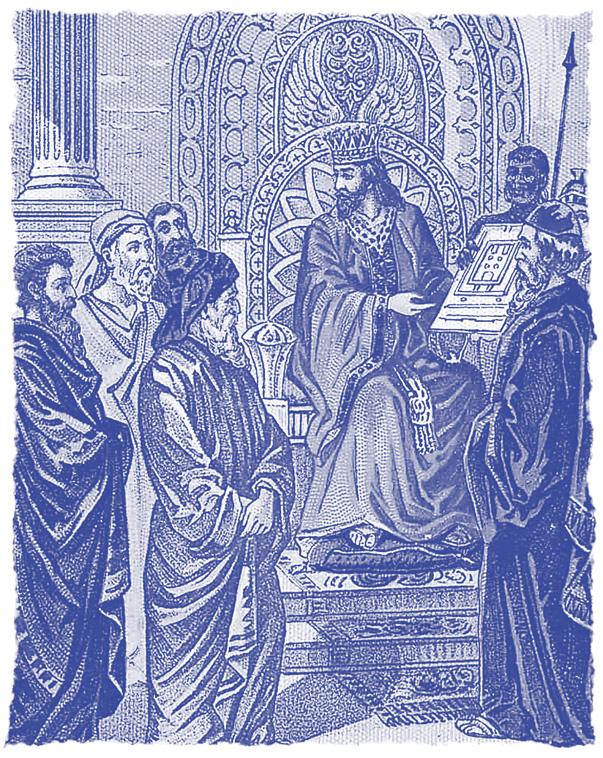
Notice these statements in verses 4–10:
- 2:4
- “I made”
- 2:5
- “I made”
- 2:6
- “I made”
- 2:7
- “I acquired greater possessions”
- 2:8
- “I gathered for myself”
- 2:10
- “I denied myself nothing.” Great wealth allowed Solomon to indulge in whatever he chose. He had no boundaries, as we will see in regard to his harem.
But, I call your attention to a note of importance in verse 9, “So I became great and excelled more than all who were before me in Jerusalem. Also, my wisdom remained with me” (emphasis mine). Remember that important point. When Solomon wrote in v. 10, “whatever my eyes desired I did not keep from them,” he revealed one of his greatest failures.
“But King Solomon loved many foreign women, as well as the daughter of Pharaoh: women of the Moabites, Ammonites, Edomites, Sidonians, and Hittites — from the nations of whom the Lord had said to the children of Israel, ‘You shall not intermarry with them, nor they with you. Surely they will turn away your hearts after their gods.’ Solomon clung to these in love. And he had seven hundred wives, princesses, and three hundred concubines, and his wives turned away his heart.” 1 Kings 11:1–3
Who were these women?
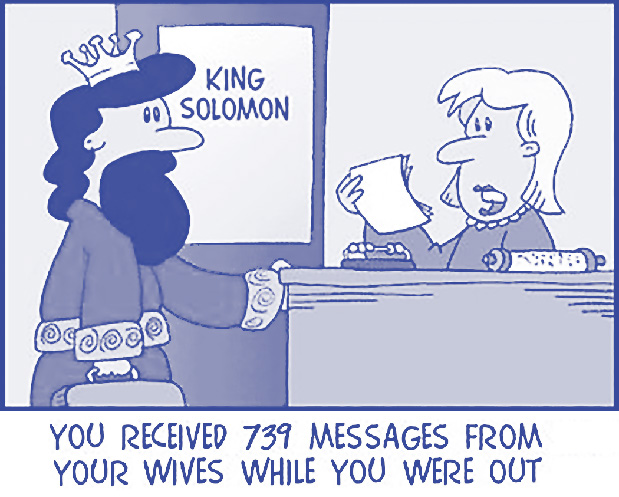

- Moabites:
- descendants of the oldest surviving daughter of Lot.
- Ammonites:
- descendants of the youngest surviving daughter of Lot.
- Edomites:
- descendants of Esau, who settled in the southeast border of Israel. The region was referred to as Edom or Idumea, but the Nabateans drove them out. Visitors to Petra become familiar with the name Nabatean.
- Sidonians:
- a people from the ancient Phoenician city north of Tyre. They worshipped Baal and Ashtoreth. Jezebel was a descendant of these people.
- Hittites:
- among the dwellers in Canaan (at the time of Joshua) who opposed Israel. They were people that God instructed to be driven out … but were not. Remember, Bathsheba’s husband Uriah was a Hittite.
Wisdom didn’t seem to rule the day concerning Solomon’s harem. When Solomon reflected on his accomplishments in verse eleven, he concluded it was meaningless, like chasing after the wind.
Have you ever chased after the wind? Probably not; but you may have chased after a loose kite or a darting hummingbird. They are near impossible to catch. But the wind? You can’t catch it! Solomon’s pursuit of a satisfying, pleasure-filled life was like that.
SOLOMON’S CONFUSION ABOUT WISDOM AND FOOLS (2:12–16)
In Solomon’s next entry (2:12–16), he famously concluded that no difference exists between a wise man and a fool. They both will die and be forgotten. I disagree.
Yes; they both die, but wise living is advantageous. Consider the evangelist Billy Graham. His and his team’s wisdom over the years served them well in protecting their reputations and giving them a voice to authentically preach the Gospel around the world.
Now consider a man who became a drunken bum in the Bowery, and died with no identification, except a few words scratched on a piece of paper. Stephen Foster gave us the wonderful lyrics of “Camptown Races,” “Oh! Susanna,” “Beautiful Dreamer,” and “My Old Kentucky Home,” just to name a few. He died a fool despite being revered for his legacy. There is a difference, and I humbly disagree with Solomon on this point; wisdom does rule over the fool’s lack of it.
Without the Good News of Yeshua, Solomon’s writing depresses me. Do you believe that life is meaningless? I hope not, because you and I were made in the image of God and after His likeness. We have been bestowed with greatness within us — let’s never forget that — and as Believers (“Believers” is short for “believers in Yeshua/Jesus as Messiah.”), we look forward to eternal life in an inherited Kingdom.
SOLOMON’S LEGACY AND LIFE (2:17–26)
The concluding verses offer two thoughts. The first is found in 2:17–23. Solomon is worried about something he cannot control. He wonders if his legacy will remain intact after he has passed from the earthly scene. Don’t we all want to leave the best part of us to the next generation? We can live a godly, instructive life. Ultimately, we have no control over what will be done when we leave this world. Solomon’s father, King David, gave sage advice in Psalm 34:12–14,
“Who is the man who desires life, and loves many days, that he may see good? Keep your tongue from evil, and your lips from speaking deceit. Depart from evil and do good; seek peace and pursue it.”
The second thought shines a ray of hope through the pessimism. In Ecclesiastes 2:24–26, Solomon admits that all that is good in life comes from the hand of God. Look at his words in verse 24: “Nothing is better for a man than that he should eat and drink, and that his soul should enjoy good in his labor. This also, I saw, was from the hand of God.” We may be turning a corner in Solomon’s philosophy of life. Remember in our study of James what he observed about our lives on this Earth? “Every good gift and every perfect gift is from above, and comes down from the Father of lights, with whom there is no variation or shadow of turning” (James 1:17).
Part 3: Originally published in the April 2020 Personal Letter.
Have you heard any of these statements: “What time is it?” “How much time do I have?” “I don’t have time.” My favorite: “I’m giving you a time out.” In fact, time is fleeting. It is something we cannot save or make up. Like when we say, “I need to catch up on my sleep,” if you haven’t slept, then sleep is lost — as is the time that could have been used in sleep to refresh body and mind.

THE CREATOR OF TIME
As we continue our study of Ecclesiastes, Solomon brings us face to face in chapter three with the fact that God has appointed a time for everything (here’s that phrase again) “under the sun.” Because God is the Creator of time, we should give serious consideration to how we use it. Before we look at Solomon’s admonition, let me call your attention to two passages in the Book of Revelation that look at the End of Time, or End of the Age as it is also called.
The first verse is Revelation 1:3, “Blessed is he who reads and those who hear the words of this prophecy and keep those things which are written in it; for the time is near.” John is setting the stage for his letters to the Seven Churches as he addresses the need to take seriously the Word of God.
The second verse is Revelation 22:10, “And he said to me, ‘Do not seal the words of the prophecy of this book, for the time is at hand.’” John warns that the time of Yeshua’s return is near. While we consider Solomon’s sage advice, let’s keep John’s warning in mind.
From the wisdom of his experiences in life, Solomon is offering the fact that everything in life is in the hands of God. I can imagine that you, as I at times, have struggled with God’s sovereignty. In living life “under the sun” (Solomon’s thesis statement), our human nature causes each of us to ask “why” about certain aspects of life.
I must confess that I have questioned God at many turns and have been reminded that trusting God is always rewarded with a peace that passes understanding. Paul wrote to the church in Philippi about that kind of peace: “And the peace of God, which surpasses all understanding, will guard your hearts and minds through Christ Jesus” (Philippians 4:7). And Isaiah reassured: “You will keep him in perfect peace, whose mind is stayed on You, because he trusts in You” (Isaiah 26:3).
THE SEASONS OF TIME
- Ecclesiastes 3:2
- “A time to be born, and a time to die; a time to plant, and a time to pluck what is planted”
Solomon records 14 pairs of opposites in Ecclesiastes 3:2–8. Curiously to me, he begins with birth and death. These are two moments in time over which we have no control.
Imagine Jeremiah’s sense of encouragement when he was told, “Before I formed you in the womb I knew you; before you were born I sanctified you; I ordained you a prophet to the nations” (Jeremiah 1:5). Not one person, including you and me, is here by accident. God has a plan for every person because He loves us and has made us in His image. That alone is an awesome thought!
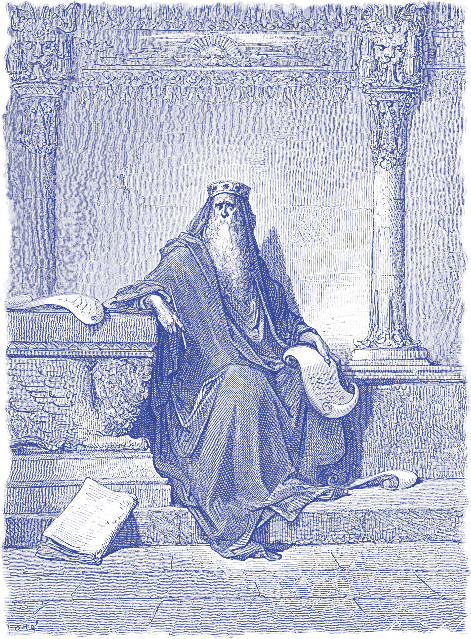
The opposite warning is given to all mankind in Hebrews 9:27, “And as it is appointed for men to die once, but after this the judgment.” God knew us before we were formed in the womb, and He knows the day and hour when He will call us back to Himself. Sobering thoughts.
Solomon continues with an example in agricultural planting and harvesting. Timing is important not only in agriculture but also in decisions of daily life. How often have you been faced with a decision that had a time frame? I’m sure you are thinking of something at this very moment that has a time limit on the decision you must make. Solomon was conscious of time because he was making daily decisions on behalf of a nation. How’s that for stress!
- 3:3
- “A time to kill, and a time to heal; a time to break down, and a time to build up”
Verse three has caused much consternation among theologians because it seems harsh. Perhaps Solomon was remembering his father David, who was involved in military battles; or maybe Solomon was looking across the land at a certain sickness that plagued the country.
- 3:4
- “A time to weep, and a time to laugh; a time to mourn, and a time to dance”
Verse four hits home for all of us. There is a time to weep and mourn, laugh and dance. Can you remember attending the memorial service for someone close to you, and the range of emotions you experienced? At one moment you are in tears, and then a family member tells a funny story that brings smiles and laughter. That’s the point Solomon is making. We all face tragedy in life and moments that crush our spirits, but then God brings a memory that lifts that bruised heart.

- 3:5-6
- “5A time to cast away stones, and a time to gather stones; a time to embrace, and a time to refrain from embracing; 6a time to gain, and a time to lose; a time to keep, and a time to throw away.”
Verses five and six come together in a unique way. There is a time in life to cast stones (v.5) or to throw away (v.6). There is also a time to gather stones (v.5) or keep things (v.6). In the Middle East, farmers often mark their agricultural property with a row of stones, or in some cases a short stone wall. Some of the smaller stones also are stacked to mark an entrance to that property. There may be no legal document to the property, but each farmer respects the claimed property of the other, or at least that’s the idea.
- 3:7
- “A time to tear, and a time to sew; a time to keep silence, and a time to speak”
Then in verse seven, Solomon speaks to the moment when a person tears his robes in mourning. It is exactly what Job did when he received word that he had lost his children and property. “Then Job arose, tore his robe, and shaved his head; and he fell to the ground and worshiped” (Job 1:20).
- 3:8
- “A time to love, and a time to hate; a time of war, and a time of peace”
In verse eight he speaks of love, hate, war, and peace. Is hate something that Christians should do? The Bible says yes! And here is one passage that supports that admonition from Solomon. “You who love the Lord, hate evil! He preserves the souls of His saints; He delivers them out of the hand of the wicked” (Psalm 97:10). Those are God’s inspired words, not mine.
Solomon’s attitude about life suddenly seems to change in verses nine to fifteen. He sees the toils of this life as worthwhile assignments from the hand of God. He recognizes that our outlook on life affects all that we attempt to do. Why? Verse eleven tells us that God has put eternity in the hearts of His people. In reality, we will never have complete satisfaction in this life because God made us for another world.
When we fear God, we have the confidence to fear nothing else. When we trust God, we have nothing to fear. Note Psalm 111:10, “The fear of the Lord is the beginning of wisdom; good understandings have all those who do His commandments. His praise endures forever.”
THE GOD OVER TIME
Remember the main idea if nothing else from this letter: God loves you and wants the best for you. In time, God sent His Son to pay the penalty for our sin. He has made a way for Believers (“Believers” is short for “believers in Yeshua/Jesus as Messiah.”) to be redeemed, purchased away from a certain eternity without Him. I would be a fool not to emphasize that point in this letter!
The final seven verses of chapter three contain a few remaining thoughts from Solomon. Don’t misinterpret Solomon’s words in verses nineteen and twenty.
For what happens to the sons of men also happens to animals; one thing befalls them: as one dies, so dies the other. Surely, they all have one breath; man has no advantage over animals, for all is vanity. All go to one place: all are from the dust, and all return to dust. (Ecclesiastes 3:19–20)
He is graphically pointing out that man and beast have two common characteristics: They both die, and they both return to dust (as noted in Genesis 2:7). The difference: At death, man’s spirit returns to God. As Solomon will reiterate: “Then the dust will return to the earth as it was, and the spirit will return to God who gave it” (Ecclesiastes 12:7).
(If you want to believe that you will meet your pet again in Heaven, I won’t argue the point. I find no evidence in the Bible that suggests that’s the case … but, then, God can perform miracles He doesn’t inform us about ahead of time. And Revelation shows Messiah and His army on horses!)
Solomon concludes chapter three of his journal with advice to accept life from the hand of God and enjoy each moment of time while we can. I like what Paul wrote in Philippians 4:11, “Not that I speak in regard to need, for I have learned in whatever state I am, to be content.”
Part 4: Originally published in the June 2020 Personal Letter.
To fully benefit from studying a book in the Bible, you cannot skip over difficult passages, such as the first three verses in chapter 4 of Ecclesiastes. Serious Bible students must plough through even potentially depressing ones. Though this coronavirus era may not seem an apt time to consider dismal thoughts, here we are, about to be blessed.
We can insert Solomon’s favorite phrase — “all is vanity” — whenever we weigh his wisdom. Is it just me or is it disconcerting that the King of Israel, obviously wealthy and off-the-charts intelligent, is frustrated with life? You probably wouldn’t list Solomon in your “lonely hearts club,” but he certainly exhibits mood swings with the best of us (or me). Solomon’s favorite term, which he constantly repeats as he admits his frustration, is “vanity.”

Please grab your favorite Bible translation to follow along with my breakdown of Ecclesiastes 4.
SOLOMON’S FRUSTRATION FROM HIS VIEW AS KING (4:1–3)
As Solomon looked around Jerusalem, he observed people being oppressed (4:1). He noted the oppressors’ power, and that the oppressed had no recourse.
What Solomon witnessed was unpleasant, and he noted in verse 1, “I saw the tears of the oppressed …” As king of Israel, he could, I assume, intervene and level the playing field a bit; but he was too wrapped up in what he considered his own troubles.
He gave very strange responses in verses 2 and 3, in which he appeared to envy the dead. He continued by commenting that maybe it was better to never have been born. That line by George Bailey marks a turning point in the classic movie It’s A Wonderful Life (1946). Portrayed by Jimmy Stewart, George soon learned the horror of his wish when Clarence, his guardian angel, showed him what the world would have been like had he never been born.
Solomon was in what my generation calls a real “funk.” Was he talking about suicide? Not likely. It was such a heinous sin in the Jewish mind that Solomon never would have considered it. But, in our society today, suicide is an unfortunate reality. Recently a NYC doctor, who had been on the front lines in fighting the pandemic and had just recovered from the virus herself, took her own life. What a tragedy that a physician with such a gift for humanity did not seek the help of her own profession!
SOLOMON’S VIEW: THE SELFISHNESS OF MEN (4:4–8)
When the world’s “new normal” returns, our resurgence may be overshadowed by desperation to recover business losses incurred during the shutdown. Though Solomon wasn’t looking at a pandemic, man’s selfishness anguished him: not large businesses, but individuals. These folks he saw were contentious and aggressive with one another.
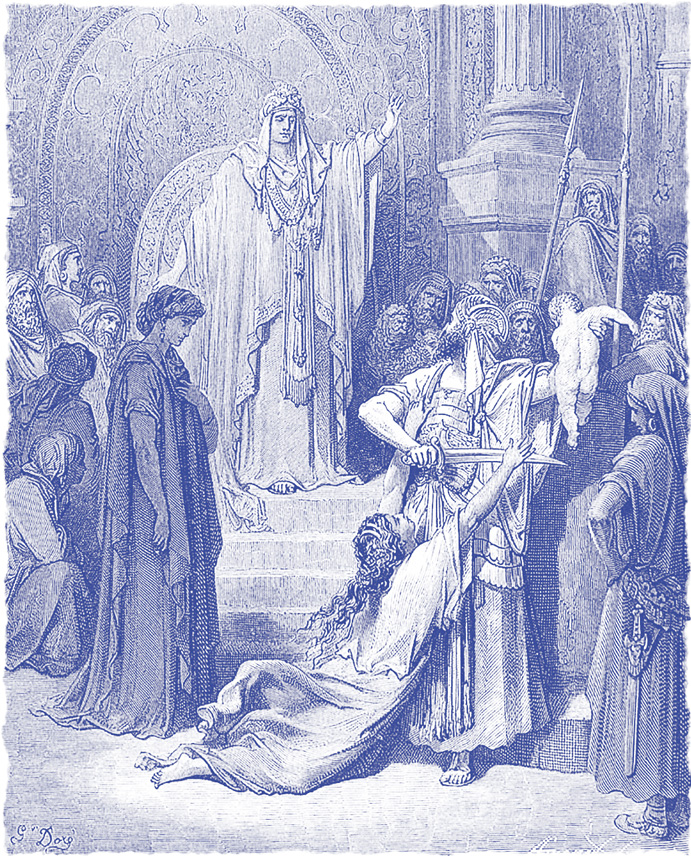
I really like the Hebrew interpretation of verse 6: “One hand full of rest or ‘completeness’ is better than two fists full of labor.” It shows a satisfaction. Solomon isn’t suggesting anyone throw in the towel in the struggle to operate a business with integrity, but to consider the virtue of practices and products that bring dignity, unity, and joy in the process. Life is not always a contest that needs winning!
An interesting change occurs in verse 8. Solomon is now talking about only one person, as he refers to “a certain man.” He previously referred to a group of people, but now he mentions the result of loneliness. Success takes on less meaning and cause for celebration when we have no one to share it. Lonely is the person who cannot slow down and enjoy the success for which he or she has labored. Unfortunate, don’t you agree? Solomon’s comment translated loosely from the Hebrew: “This is nuts!” ☹️
Climbing the ladder to success involves challenges and setbacks. I will paraphrase a quote from years ago: “Too often people climb the ladder of success only to find that the ladder is leaning against the wrong support.” We all need to ask if our priorities align with God’s priorities for our lives. Again, Solomon’s theme is noted, “vanity.”
SOLOMON’S VIEW: THE VALUE OF FRIENDSHIP (4:9–12)
Now for one of my favorite sections in all of Solomon’s writings. Here, it sounds as though Solomon is writing to married couples, and certainly we marrieds are included. But his advice goes beyond that type of relationship. Notice that this passage never mentions marriage.
Here is a good place in our study to pause and offer up our prayers for all the people who have put themselves in harm’s way during this pandemic: medical personnel; EMTs, firefighters, and other first responders; grocery workers, fuel station workers, and a host of other essential services.
We should also pray for those who are separated from family in ICU units, assisted living, and nursing homes. Though brave attendants are serving them, those attendants cannot replace the friends and families who have been sheltering in place.
All of us need to be encouraged and, as verse 10 says, lifted up. We want that one person (could be more) who refuses to walk away when the going gets tough. Humans need a human touch — and constructive criticism when necessary — in a loving, non-threatening environment.
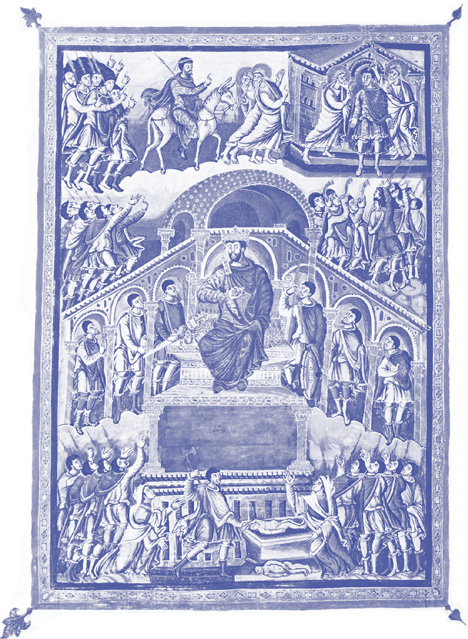
We want support when we have stuck out our chin and dared the competition to take a swing. The idea in verse 11 regarding warmth when lying down is a wonderful statement for married couples. There is no feeling that compares to settling in with our mate on a cold and dreary winter’s night. Remember, Solomon also wrote the sensuous “The Song of Solomon.”
The reminder that Solomon gives in this verse 11 isn’t only about the marriage bed, but the cold, cruel world in which we live and our need for companionship when exposed to life’s elements.
It’s no fun when you start a new job in a new city or begin a demanding academic endeavor. All eyes are on the new kid, or adult as it may be.
And what about waiting in a hospital room or doctor’s office for medical test results? You and I want someone who will support us in our time of need. Of course, our Lord told us He would never leave us or forsake us (Hebrews 13:5). I am not making light of that promise and the weight it carries for Believers (“Believers” is short for “believers in Yeshua/Jesus as Messiah”), but there is something about a warm touch and assuring smile that helps us get through the tough stuff of life.
We have an adversary who is determined to destroy us.
“Be sober, be vigilant: because your adversary the devil walks about like a roaring lion, seeking whom he may devour.” — 1 Peter 5:8
Our adversary might influence someone to undermine our character and destroy our witness with lies and rumors. When that happens, we need an ally who will walk by our side and not leave us in the controversy. Simply put: We need a friend. There are many examples of friendship in the Bible, but I call your attention to only one: David and Jonathan.
As David’s popularity increased in Israel, Saul’s hatred for him grew. Instead of mentoring David, who would soon become king, Saul sought to destroy him. Saul’s son Jonathan became one of David’s best friends and admirers. In fact, the Bible says that “Jonathan loved him [David] as his own soul” (1 Samuel 18:1).
Our Lord also chose twelve unlikely men as disciples. What a group of misfits He called out to encourage and turn the world upside down with the Gospel! I guess there’s hope for me, too. Of course, only eleven stood the test; but imagine having eleven friends that you can depend on at any given moment and under any circumstances.
SOLOMON’S FINAL REMINDER (4:13–16)
In the final four verses of chapter 4, Solomon reminds his readers that popularity and fame are fleeting. Again, he calls life “vanity and grasping for the wind.” Imagine how walking alongside Yeshua as a disciple would have improved Solomon’s outlook!
Part 5: Originally published in the August 2020 Levitt Letter.
Listen to His Voice: Ecclesiastes 5:1–7
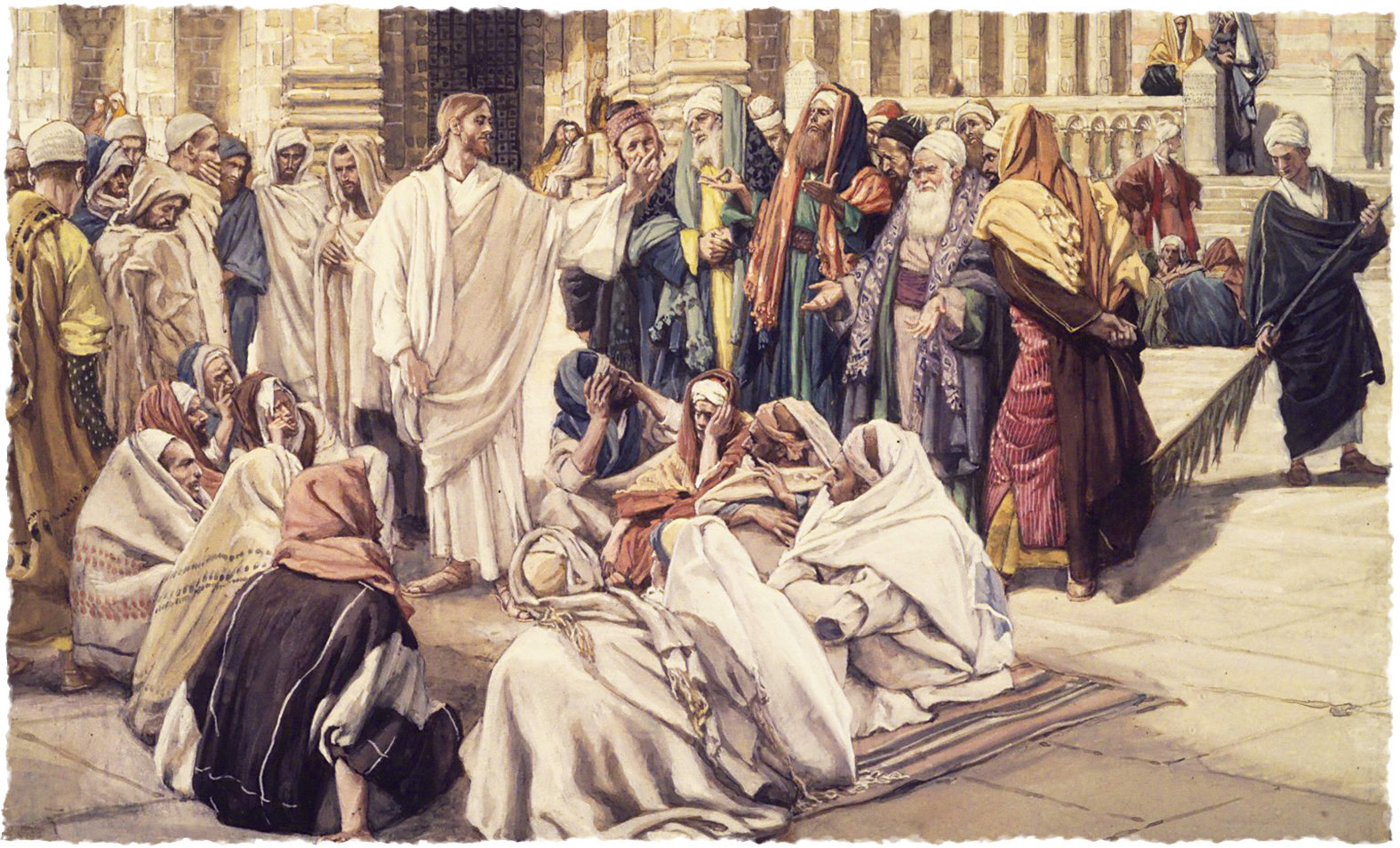
Are we living in the End Times? Is this the Tribulation? What is going on in our chaos-driven world? I can’t imagine that any thoughtful person who reads their Bible would deny that we are living in the End Times. But if you believe in a pre-Tribulation (as Zola did) or pre-Millennial Rapture, then you know that this is not the Tribulation. So, consider how awful life will be for those who are left behind when the Rapture of the Church occurs. We’ve got work to do!
In our study of Ecclesiastes, the first seven verses of chapter 5 instruct us in the necessity and tranquility of worship. Would you like to draw aside from the constant statistics about COVID-19 and videos of rioting on the news? Let’s do that together, if only for a few moments! I pray that this time will be a solace to your soul.
Draw Near and Listen for God’s Voice (5:1)
Solomon’s admonition in verse 1 obviously came from observing the loud clatter of people coming to the Temple to worship. The crowd was gathering and talking over business deals, marriage arrangements (you read that correctly), and other deals of commerce. Do you think that it’s different now? Think again! Probably as many deals are discussed and settled in the church building as in office buildings. Solomon was admonishing the people to be quiet and listen for God’s voice. I agree: Don’t talk so much when coming into the presence of the God of Abraham, Isaac, and Jacob. A quick “hello” or “good to see you” is fine, but not endless chitchat.
Sometimes preachers’ sermons can be without pathos. (I’ve preached a few of those myself.) But keep in mind that the recipient needs to be as prepared as the person delivering the message. The admonition is “draw near and hear” from the person God has chosen to be His messenger. Okay; enough on that.
Be Quiet and Still (5:2–3)

The most often quoted corollary verse is Psalm 46:10, “Be still, and know that I am God; I will be exalted among the nations, I will be exalted in the earth!” Solomon made his point about not bringing the stresses of life into the worship experience. Of course, we cannot turn off everything that causes us to wring our hands in the work-a-day world, but Solomon emphasizes that a quiet demeanor before God soon becomes our spiritual “hideaway” in His presence.
Perhaps the first line in the hymn “Rock of Ages” by Augustus Toplady tells us best: “Rock of Ages, cleft for me, Let me hide myself in Thee.” It is a moment of worship in which, instead of filling the air with our voice, we quietly listen for His voice. Again, be quiet and still.
Make a Vow, Keep a Vow (5:4–5)
Read verse 4 very carefully. “When you make a vow to God (emphasis mine), do not delay to pay it; for He has no pleasure in fools. Pay what you have vowed.”
These two verses are so straightforward that they really need no explanation. But, read with care the part in bold. The vow is made in the eyes of God. So, if you vow at the altar to love, honor, and cherish your mate, that vow is made in the eyes of God. If you vow (promise) to make a financial or other commitment in business, then that is a vow in the eyes of God.
Verse 5 is a common-sense statement. “Better not to vow than to vow and not pay.” Since vows were strictly voluntary in Biblical times, and remain that way today, either keep them or don’t make them. As Jesus reminded His audience in Matthew 5:33, “Again, you have heard that it was said to those of old, ‘You shall not swear falsely, but shall perform your oaths to the Lord.’”
The only point to add here is that the Bible’s word “pay” means “keep” — don’t think exclusively of monetary transactions. As previously noted, a vow is a promise in the eyes of God.
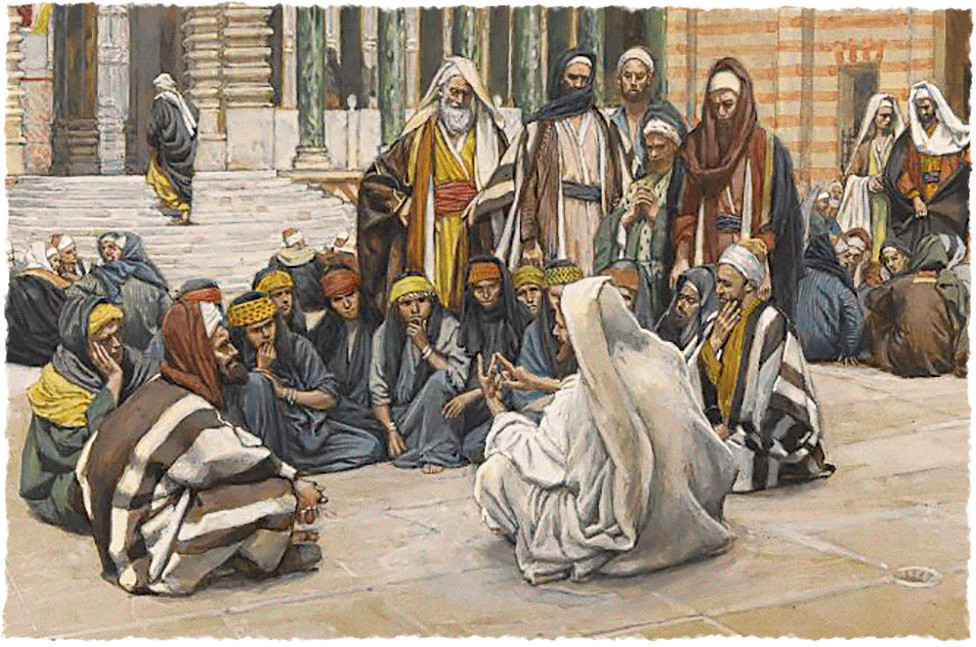
Don’t Wimp Out (5:6–7)
Solomon is calling out people who say they will but, when the going gets tough, won’t. Have you ever said okay with your fingers crossed behind your back? If a Believer makes a commitment to someone (or something), no excuse exists before God to not fulfill that commitment. As one of my professors would say, “not even on pain of death.”
This is serious business. We live in a society that looks for the easy way out of everything! Personal responsibility has become passé. Solomon is calling all of us back to commitment and personal responsibility, whether we teach, preach, own a business, run a household, or whatever our traffic pattern in life may be.
We need to come back to the place in society where Ecclesiastes 5:7b is the mantra for our generation and the one to come, “But fear God.” When the fear of God is a person’s primary focus, then the worship of God is the most natural thing for that person to do.
Part 6: Originally published in the September 2020 Levitt Letter.
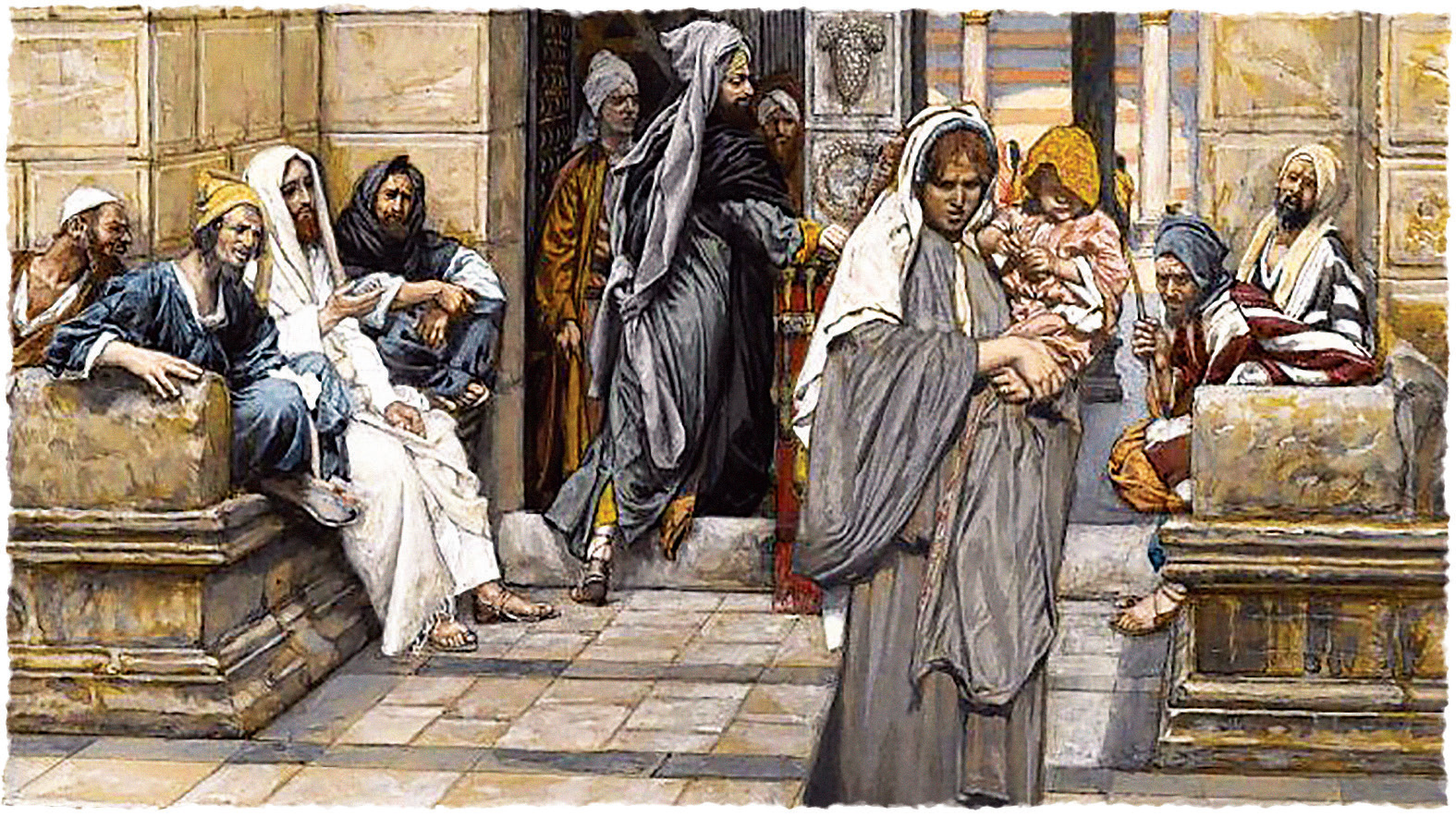
We continue our study in Ecclesiastes with the final thirteen verses in chapter five. Solomon writes about wealth, work, and life. Since he is the wealthiest man of his time, he may know a thing or two about money. Let’s hear what he has to say on the subject.
Unchecked Power Brings Oppression (5:8–9)
Verse eight begins, “If you see the oppression of the poor… .” Solomon observes that rich people wield the most power and influence. They have leadership roles in almost all sectors of government. The verse goes on to explain that officials watching over officials creates a complicated and controlling system. Solomon is concerned that such a system creates a group of untouchables — and that’s never a good situation in any organization.
The world does need leadership — it is a Biblical principle. Solomon writes in Prov. 29:18a, “Where there is no revelation [vision], the people cast off restraint.”
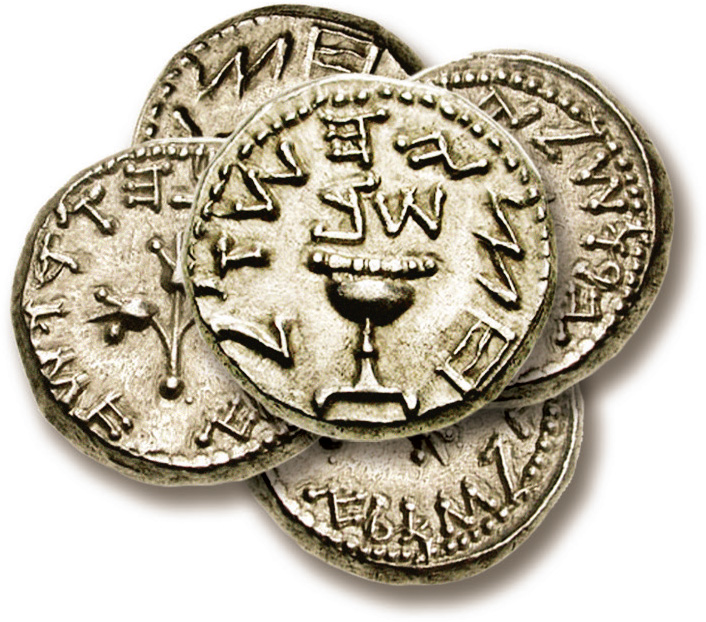
Love of Money Doesn’t Satisfy (5:10)
Solomon knows firsthand that a person who loves money will not find satisfaction or happiness. Ask a person who loves money, “How much is enough?” The answer will always be, “More.”
But money isn’t the issue. The problem is man’s love of money. “For the love of money is a root of all kinds of evil, for which some have strayed from the faith in their greediness, and pierced themselves through with many sorrows.” 1 Tim. 6:10
Solomon knew all too well that some people couldn’t handle wealth; it would ruin their commitment to God and family. Yes, it can provide some comfort and a sense of security. But consider the parable of Jesus in Luke 12:19–20, “And I [a rich man] will say to my soul, ‘Soul, you have many goods laid up for many years; take your ease; eat, drink, and be merry.’ But God said to him, ‘Fool! This night your soul will be required of you; then whose will those things be, which you have provided?’” Sobering thoughts, don’t you think?
Wealth Creates Restlessness (5:11–12)

Solomon makes a good point that as people gain riches, more people surround them to live off their successes. He then gives us a startling contrast.
Many wealthy people cannot enjoy a good meal or a sound night’s sleep, because their minds are continually churning about the next business deal. Love of money is the trouble, not the money itself.
In contrast, the man who labors in the field all day, looking after his sheep or cultivating a crop, comes home at sundown, enjoys a good meal, and then fades into a restful night’s sleep. I use an agricultural illustration because that was the work of the majority in Bible times.
Why do I get the impression that Solomon may be giving insights into his own life? He is the wealthiest man on the planet. He is the king of Israel, with an untold number of servants. He enjoys the best of food, wine, and entertainment. And as the Bible tells us in 1 Kings 11:3a, “He had seven hundred wives, princesses, and three hundred concubines.” Did he have trouble getting a peaceful night’s sleep? I’ll leave that answer to you.
More Evils under the Sun (5:13–17)
Remember, Solomon is very wise and very wealthy, so he understands finances. His message could be to not put all your eggs in one basket. While his words seem blunt, they carry a tone of compassion. The financial world can change in the blink of an eye for anyone, wealthy or not.
Solomon again reminds us of that inevitable moment we tend to ignore: death. He notes that a person works and saves, and then, all of a sudden, his financial world comes crashing down. All is lost. Or, maybe that individual somehow escapes the financial crash, but suddenly drops dead of a heart attack. The philosophical adage remains true: “You can’t take it with you.”
Verses 16 and 17 describe the evil of a person who lives life in the fast lane — a misguided soul who goes at life hard and fast and eventually realizes that he is “chasing the wind.” That person soon becomes bitter and cannot enjoy the simplest meal. Anger and bitterness can rise up in anyone. That is one reason why the Bible tells us to “guard our hearts” (Proverbs 4:23).
God is not against us … He is for us! Why else would He send His only Son to suffer and die on a Roman cross to pay the penalty for our sin? It is the love of God, not the love of money, that will push you and me through life’s most difficult times and escort us into His presence at our death. What a glorious thought that He loves you and me to the utmost!
Good News from Solomon (5:18–20)
Learn to enjoy yourself. Why wait to enjoy life? Think on good things. Laugh. If you came to my house on a Saturday evening at 5 pm, you would swear that a lunatic was in the house. My release for the week is to watch 1½ hours of “The Three Stooges.” Going back to my childhood memories of these three characters provides solace to my soul.
Solomon reminds us to own our work and give the glory for it to God, especially good advice in these difficult times. Settle in and be content with the Lord’s sufficiency.
In conclusion, I want to remind you that you are a child of the King of Kings and Lord of Lords. He owns it all; so as His heir, you are rich indeed!
Part 7: Originally published in the October 2020 Levitt Letter
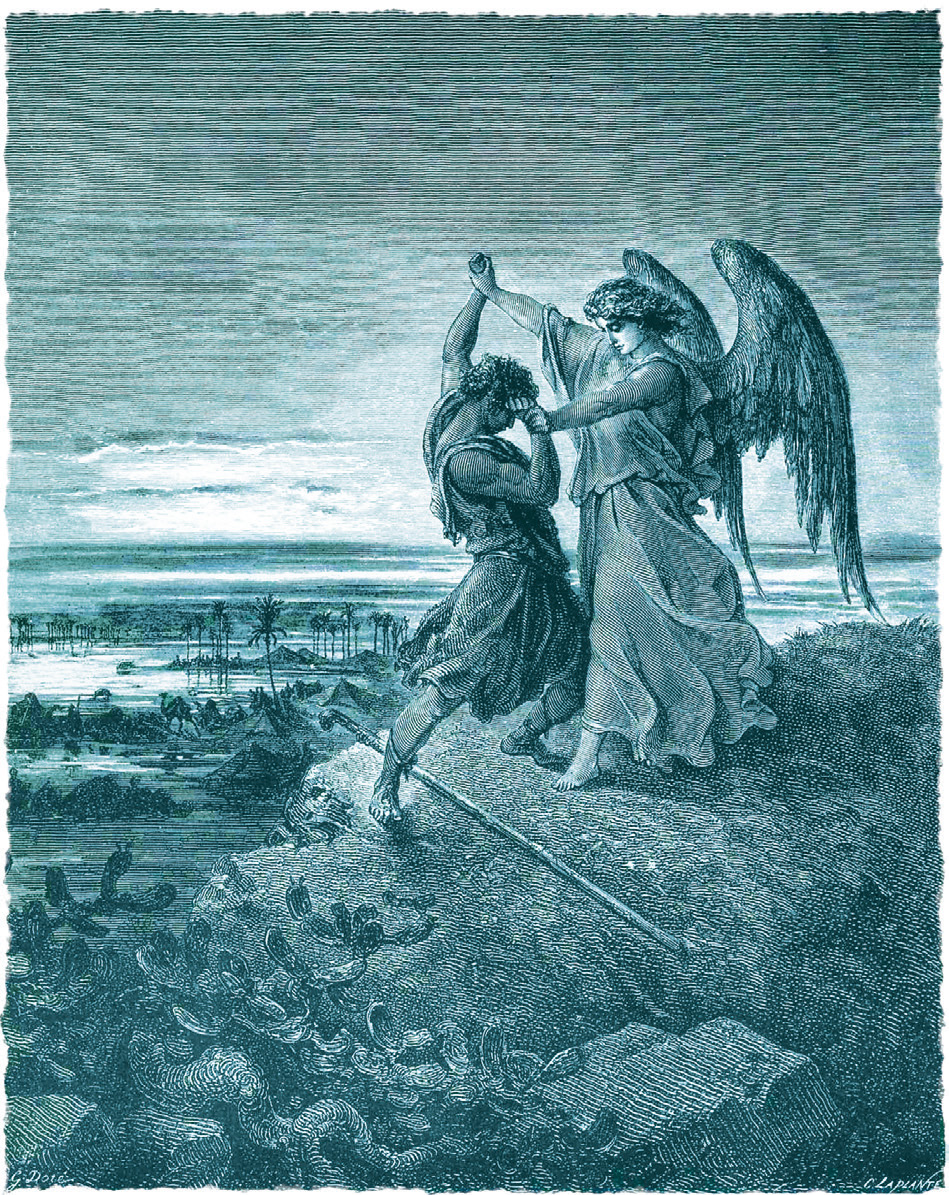
Can’t Argue with God: Ecclesiastes 6
We have walked with Solomon through five chapters of Ecclesiastes in which he has given his perspective on a wide range of life situations. Solomon wrote about the Good, the Bad, and the Ugly (with apologies to Clint Eastwood, et al.) regarding life. His conclusion remained the same in each entry: “It is vanity, futility, and chasing the wind.”
What We Know (6:1–2)
Read carefully the first two verses of chapter six. Could Solomon be referring to himself? What he writes definitely fits.
We know that God greatly blessed Solomon in order for him to rule Israel with wisdom. Look back at 1 Kings 3:11–12,
Then God said to him: “Because you have asked this thing, and have not asked long life for yourself, nor have asked riches for yourself, nor have asked the life of your enemies, but have asked for understanding to discern justice, behold I have done according to your words: see, I have given you a wise and understanding heart, so that there has not been anyone like you before you, nor shall any like you arise after you.”
Even as God gave Solomon all that he could ever want, it appears that Solomon was not able to enjoy the gifts. Notice how the 2nd verse ends; “a foreigner enjoys them.” The Hebrew word nokri describes an alien — a person from another land. Someone was stealing Solomon’s opportunity to enjoy life.
Can you remember a time in your life when everything was running smoothly, but for some reason you had the blahs? I will answer for all of us: Yes!
It could have been caused by a judgmental comment from someone you considered a friend, or by the evil you see in the world. Remember, Satan is active in this world, ready to steal your joy and destroy your life. “Be sober, be vigilant; because your adversary the devil walks about like a roaring lion, seeking whom he may devour” (1 Peter 5:8).
At times, we may conclude that life just isn’t fair. Let’s visit another person in the Bible who had every right to question and blame God: Job. Job wasn’t privy to the conversation in Heaven between God and Satan. While Job lost everything — and he did complain — he finally settled the issue of God’s sovereignty. When you have time, read about Job. You will be inspired!
Solomon’s Dark Side (6:3–5)
I would prefer to skip the next three verses, but we’re studying through Ecclesiastes. By this method, even if you don’t like it, you can’t skip it. Solomon mentions a few ideas that might make his life better.
What about having numerous children? He decides that doesn’t help.
Now we enter the controversial dark side. Solomon concludes that if life cannot be enjoyed, it’s better to never have been born or to be stillborn. I apologize because no doubt some of you have dealt with the devastation that surrounds this disappointment. I believe that Solomon has missed the mark in these verses. He is in a very dark place, emotionally.
The Darkness Continues(6:6–9)
Can a man be satisfied if he lives a thousand years twice? Solomon concludes that even a life that long ends up in the grave. If life is hard, what difference does 2,000 years make? Extra time would not relieve man of hardship.
In verses seven and eight, Solomon talks about working harder; but that doesn’t bring satisfaction. Do wisdom and wealth automatically translate to happiness? Wait! Remember who is writing? Solomon is the wisest and wealthiest man in the world, and he is the one questioning everything.
So, should Believers in Yeshua/Jesus as Messiah stop pressing forward? Should we stop dreaming? I understand that we each need to keep our feet firmly planted in reality and not let our dreams rule our lives. As one expression goes, we need to “keep it real.”
That is not to say that our world doesn’t need visionaries. If Zola Levitt had not been an inspired visionary, then Zola Levitt Ministries would not exist. Zola was a musician at heart but an educator in his soul. He had a clear vision and undaunted passion for what God wanted him to do. I think he succeeded. Don’t you?
Spoiler Alert: God is Sovereign (6:10–12)
Verse 10 clearly asserts that everything is in God’s hands. Nothing takes Him by surprise. As Jeremiah relates (1:5), “Before I formed you in the womb I knew you.”
Do you ever argue with God or second-guess Him? I’ve noted verse 10 before and, believe me, it is a tough pill to swallow. Nebuchadnezzar found out the hard way that God always prevails. “All the inhabitants of the earth are reputed as nothing; He does according to His will in the army of heaven and among the inhabitants of the earth. No one can restrain His hand or say to Him, ‘What have You done?’” (Daniel 4:35)
In conclusion, Solomon realizes that time passes quickly and that everyone is subject to God’s will.
What does the future hold? Who could have imagined a few months ago the chaotic state of our world today? Only God knows what comes next — giving Believers all the more reason to secure our anchor to the “Chief Cornerstone of our faith.” Paul wrote these words to the Ephesians, “Now, therefore, you are no longer strangers and foreigners, but fellow citizens with the saints and members of the household of God, having been built on the foundation of the apostles and prophets, Jesus Christ Himself being the chief cornerstone” (Ephesians 2:19–20).
Part 8: Originally published in the November 2020 Levitt Letter
Solomon’s Turning Point: Ecclesiastes 7:1–14
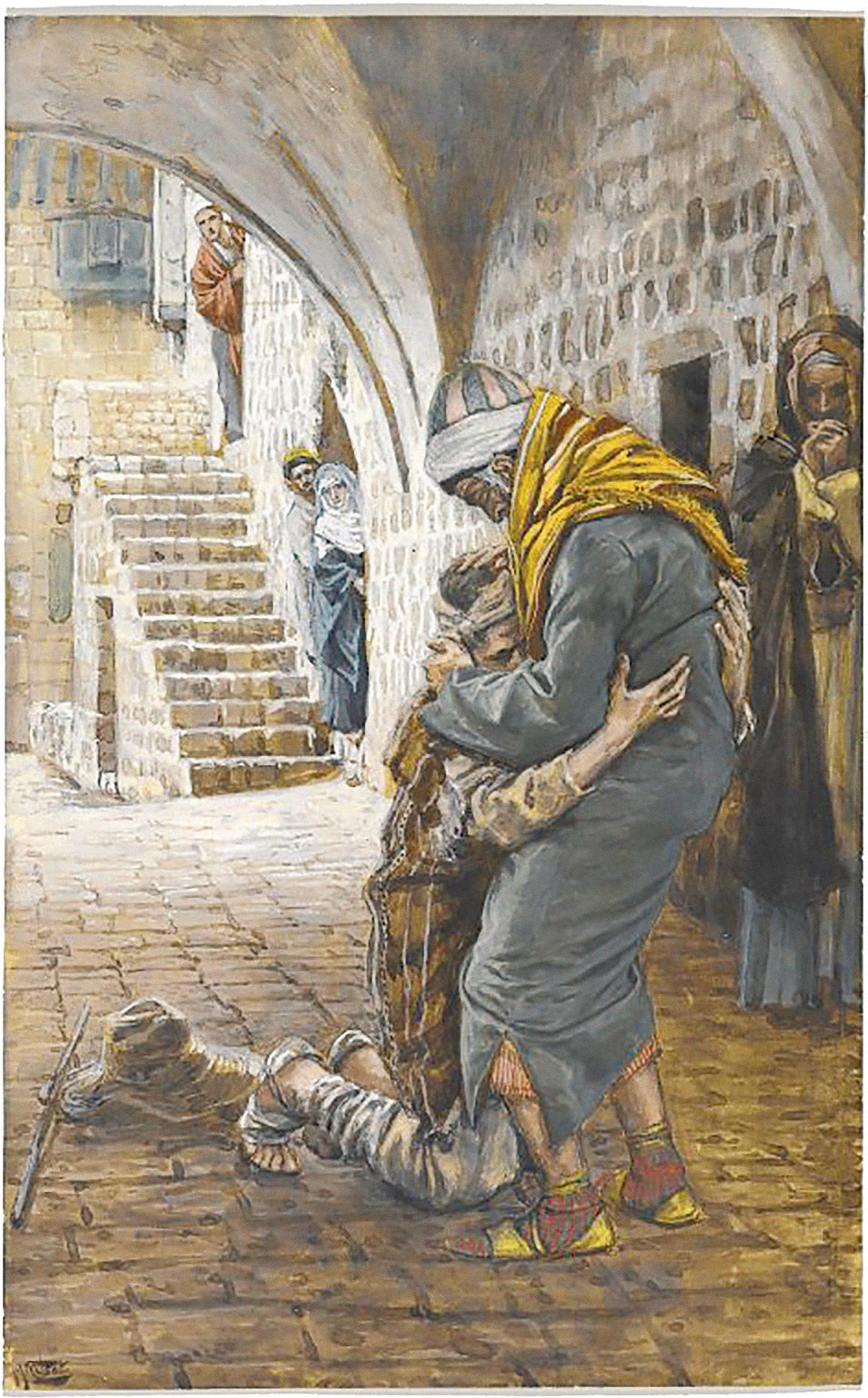
In the first six chapters, we witnessed Solomon tossing off restraint and exhibiting lack of wisdom — an interesting development since he has been identified as the wisest man to ever live. Solomon had lost his way spiritually but is now beginning to turn around.
Do you recall the “prodigal son’s” turning point (Luke 15)? It occurred in verse 17: “But when he came to himself…” Solomon’s transitional moment similarly arrived. He came to his senses and began to exercise the wisdom with which God gifted him.
The Work of Practical Wisdom (7:1–8)
“A good name is better than precious ointment, and the day of death than the day of one’s birth.” Solomon points out that it should be everyone’s desire to leave a good name that bestows great influence and untarnished reputation.
Verse 1: A good ointment is known for its quality. We all want products of quality, but quality products cannot compare to someone with a good reputation — someone who has improved the lives of others.
In the second part of verse one, we read that the day of death is better than the day of birth. What? We don’t like to discuss death. We try to avoid the subject, and modern western medicine has helped to extend the life expectancy of most people. Solomon, however, knew that life under the sun could not compare with life in the presence of God.
Paul expressed it this way in Philippians 1:21, “For to me, to live is Christ, and to die is gain.” I think Paul and Solomon are on the same page on this one.
The next three verses are very similar in their message, so we will consider them together.
Verse 2: “Better to go to the house of mourning than to go to the house of feasting, for that is the end of all men; and the living will take it to heart.”
Verse 3: “Sorrow is better than laughter, for by a sad countenance the heart is made better.”

Verse 4: “The heart of the wise is in the house of mourning, but the heart of fools is in the house of mirth.”
Traditionally, at least in the South, when a person dies, someone will provide a meal for the grieving family. During that mealtime, memories are shared and laughter fills the hall. Then, once everyone is gathered in the memorial service, the food and laughter are forgotten, and an attentive perspective about life comes into focus as they mourn. According to Solomon, only fools would look upon the memorial service as frivolity.
Verse 5: “It is better to hear the rebuke of the wise than for a man to hear the song of fools.” The wise person who rebukes (corrects) us could be a teacher, friend, or a parent. If we are wise, we will accept it and give thanks that someone cares about us.
Verse 6 compares the words of fools to the crackling fire of a thorn bush — quickly popping and just as quickly fading out.
Verse 7 suggests that the temptation to live outside of wisdom could become so intense that a person could give in to it and ruin their reputation.
Verse 8: “The end of a thing is better than its beginning; the patient in spirit is better than the proud in spirit.” Why is the end better? Because we can look back and see how everything progressed to bring us to a point of completion. No matter your stage (age) in life, you probably have thought about moments you could re-do. Normal? Yes. Possible? Not a chance!
During this pandemic, we all have experienced the challenge of being patient. But rather than rushing ahead, we should take the advice found in Psalm 46:10, “Be still, and know that I am God…”
Living Life Now (7:9–10)
Solomon follows in verse 9 with wise counsel, warning that we should not be quick to anger, because the end result may cause us to look foolish, not wise. That harks back to verse 1 regarding a good reputation. We could miss the opportunity to be heard if we “blow our top.”
Verse 10 points us to the age-old question: Do we really want to relive yesterday? From my walk through history books about the “good ol’ days,” it seems to me they really weren’t that good. I doubt that any of us would trade our modern conveniences for yesteryears’ struggles. I agree with the Psalmist: “This is the day the Lord has made; we will rejoice and be glad in it” (Psalm 118:24).
Practicing Practical Wisdom (7:11–14)
- Wisdom brings a defense, a protection. Verses 11 and 12 point out that living life in wisdom prevents the overwhelming foolishness that Solomon addressed in the first six chapters — foolishness that can shorten one’s life. I think that is what Solomon was addressing in verse 12: “… wisdom gives life to those who have it.”
- Wisdom acknowledges that God is ultimately in control of everything. Look at verse 13 as we close this study: “Consider the work of God; for who can make straight what He has made crooked?” Simply put, who can change what God has done?
The conclusion in verse 14, then, is that God has appointed prosperity at times and, at other times, adversity. Our response to each is the key to a life lived in wisdom! 1
Part 9: Originally published in the December 2020 Levitt Letter
Wisdom’s Lessons in Living Life: Ecclesiastes 7:15–29
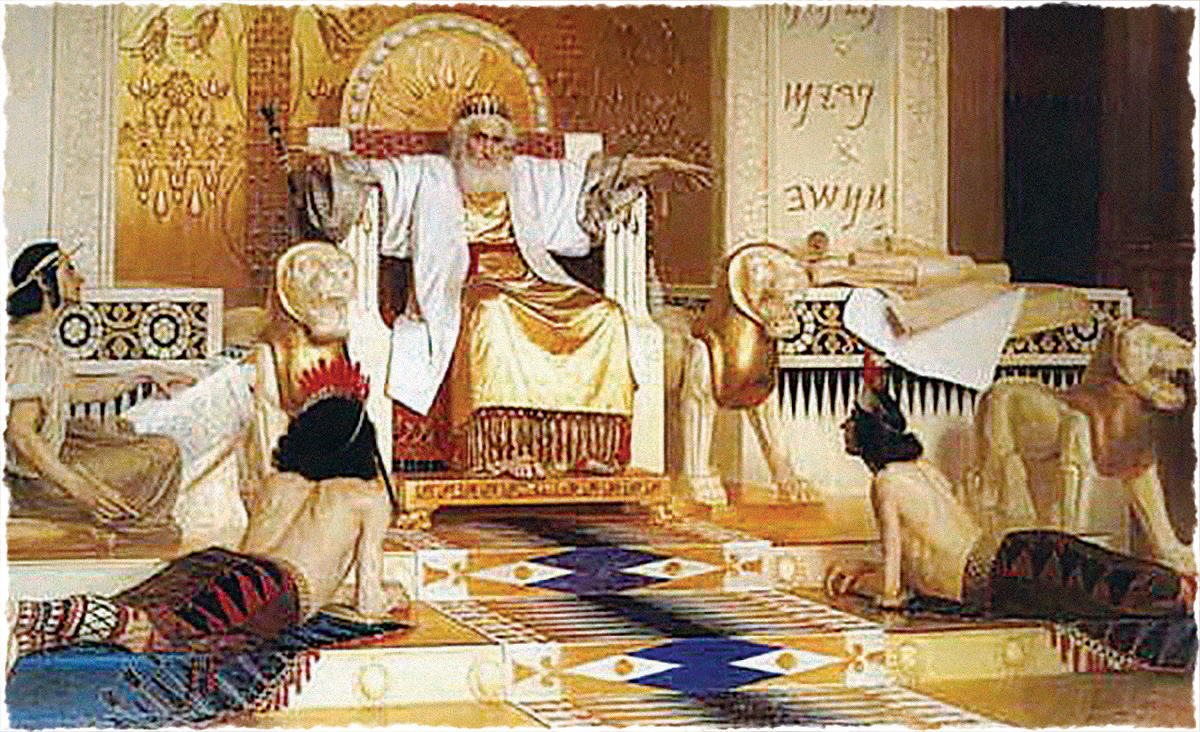
The author of Ecclesiastes is the son of David and king of Israel. Solomon is a uniquely gifted person who influenced countless people in his lifetime and continues to positively influence those who take the time to read his sage advice.
Solomon begins this last section of chapter seven with a rather bold statement: “I have seen everything in my days of vanity” (7:15a). But he doesn’t stop there; he defines what he has seen. “There is a just man who perishes in his righteousness, and there is a wicked man who prolongs life in his wickedness” (7:15b).
Say it with me: “That’s not fair!” — exactly Solomon’s point about the days of his vanity. All of us want the “good guy” to win; but we know from observation or personal experience that justice doesn’t always prevail.
Consider the fact that our Lord was beaten and crucified because He wanted mankind to escape an eternity without God. Fair? No! But, aren’t you thankful that He was willing to take our place on that cross?
Let’s look at the remainder of this chapter and unlock more of Solomon’s pearls of wisdom.
Live Life in the Middle Ground (7:16–18)
Verse 16 warns not to be caught up in legalistic self-righteousness. Simply put: Don’t be so set in ritual that you can’t meet people (e.g., unbelievers) where they are in life. Not everyone is ready to hear the Gospel, so we must develop a more suitable approach than whacking someone on the head with a Bible. Solomon isn’t talking about actually destroying yourself, but of sabotaging your opportunity to be heard.
Remember the “woes” that Jesus pronounced on the Pharisees in Matthew 23? Take a break and read through Matthew 23. It will put an exclamation point on what Solomon is conveying to his readers.
In verses 17 and 18, Solomon warns about being foolish. Fear of God will be a guide when you get carried away in self-righteousness, or when foolishness begins to interfere with wisdom.
Live Life with Confidence (7:19–22)

In verse 19, Solomon notes that wisdom is greater than military strength. Solomon illustrates this concept in Ecclesiastes 9:13–15, “This wisdom I have also seen under the sun, and it seemed great to me: There was a little city with few men in it; and a great king came against it, besieged it, and built great snares around it. Now there was found in it a poor wise man, and he by his wisdom delivered the city. Yet no one remembered that same poor man.”
Verse 20 reminds us of Paul’s words in Romans 3:23, “for all have sinned and fall short of the glory of God.”
Verses 21–22 advise us not to allow criticism to derail our commitment to God and the work to which we are called. I’ve never seen a monument erected to a critic. However, verse 22 brings a warning that we are to be strong, not arrogant, in dismissing a critic. We too have probably been guilty of criticizing others. (The term “curse” doesn’t imply foul language but rather being dismissive of another’s life or lifestyle.)
Live Life Admitting Limitations (7:23–26)
Verses 23–25 reiterate Solomon’s life journey. He admits that wisdom cannot answer every question in life; some things are left as God’s mysteries.
Verse 26 can be taken in a couple of ways. The “woman” could be a metaphor for folly. Folly (wickedness) is a snare more bitter than death. The only escape is to please God, which would mean pursuing God rather than pleasure.
Verse 26 can also be taken literally, since Solomon understood that his foolish pursuits were as much to blame as the women he was pursuing. He did have 700 wives and 300 concubines.

Live Life in the Truth (7:27–29)
In verse 27, Solomon admits that he is baffled as to why he does what he does. Does that ring a New Testament bell? In Romans 7:15, Paul writes: “For what I am doing, I do not understand. For what I will to do, that I do not practice; but what I hate, that I do.” Solomon and Paul are on the same page; neither of them understands why he does the things that he’d rather not do.
Solomon admits in verse 28 that an upright man or woman is impossible to find. (The “one in a thousand” is often interpreted to be the Messiah.) A very familiar story in Genesis 18 unfolds as Abraham pleads with God to spare Sodom if he can find ten righteous men. He can’t, and Sodom is destroyed. God is patient and merciful, but He cannot continually ignore the sins of His people.
Solomon concludes by reminding us Bible readers that God created humans as perfect: “God created man in His own image; in the image of God He created him; male and female He created them” (Genesis 1:27), but people “have sought out many schemes” (Eccles. 7:29).
The truth of the matter is that after the fall, man became more interested in devising his own schemes than in listening to God’s directives. The world hasn’t changed since Solomon’s days. His now familiar conclusion bears repeating: “There’s nothing new under the sun.”
Part 10: Originally published in the January 2021 Levitt Letter
Leadership 101: Ecclesiastes 8
Being in leadership at any time in history brings out the best and worst in people. I’m certain that each of you readers can think of a leader who made wise decisions and a leader who made foolish decisions.
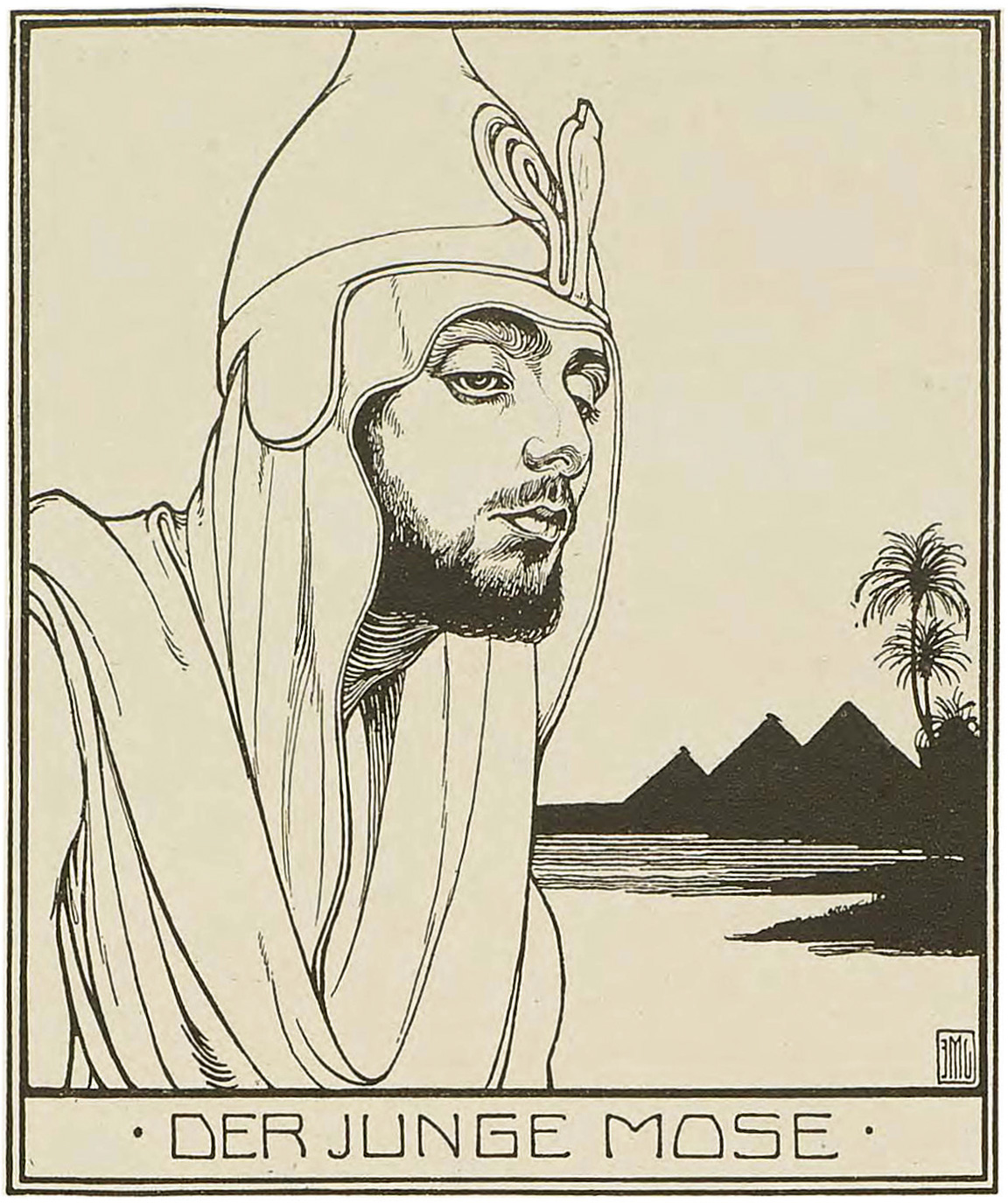
One Biblical example of leadership is Moses. Even though he was chosen to lead the Israelites out of Egypt, he was not allowed to cross over into Canaan — the Promised Land — because he didn’t uphold God’s holiness before the Israelites (Deuteronomy 32).
In the first nine verses of Ecclesiastes 8, Solomon clearly talks about a person in authority, or we might prefer the title “leader.” The following are a few noteworthy points.
Leadership Disciplines (8:1–9)
- Think Before You Act (8:1) A wise man will cast a vision and confidently lead an organization in a successful direction. The same directive could apply to the head of a household or anyone in a place of leadership.
- Maintain Kindness (8:1b) “A man’s wisdom makes his face shine.” Wouldn’t you prefer to work for, or with, a delightful person rather than a grump? I thought so.
- Control Your Tongue (8:2–4) Solomon encourages leaders to weigh their words. Just because someone is in a place of leadership doesn’t give him the right to verbally abuse. I am reminded of a children’s song that applies here: “Oh be careful, little tongue, what you say.”
- Make Confident, Informed Decisions (8:5–7) Solomon uses the term “command,” because exercising authority instills confidence in an organization’s leader. That same wise leader will know the right timing in making those decisions. In these uncertain times, leaders must be creative, strong, and steady.
- Know Your Limitations (8:8) “No one has power over the wind to retain the wind. And no one has power in the day of death. There is no release from that war, and wickedness will not deliver those who are given to it.”
This verse is very sobering to those hard-pressing leaders who believe that they have the final say about everything. Not so. One cannot control the wind (Hebrew — ruach) or the day of death.
- Don’t Manipulate People (8:9) Solomon points out that manipulating people not only hurts the person and the organization but also the leader.

Leadership’s View of Life’s Inequities (8:10–17)
The end of this chapter, verses 10–17, focuses on how a leader views the inequities of life. We can use Solomon as our example, taking his advice for future leaders.
- Solomon observes in verses 10–14 that it is unfair for the wicked to go unpunished. In verse 11, his consternation derives because punishment for the wicked doesn’t come quickly enough for him. Every leader wishes that dealers in lies and falsehoods would see just rewards quickly. But, that’s God’s business, not ours.
Leaders want results — quick results and fair results. Unfortunately, there are mysteries about life that we will never understand.
I generally don’t use personal examples, but this one rings true for me. My maternal grandfather could often be heard singing, if ever so softly, the song “Farther Along” (Stamps-Baxter Music Co. 1937). Granddad was born a triplet in 1898, and lived through two world wars, the Great Depression, the assassination of a president, and more. Here’s the song’s chorus:
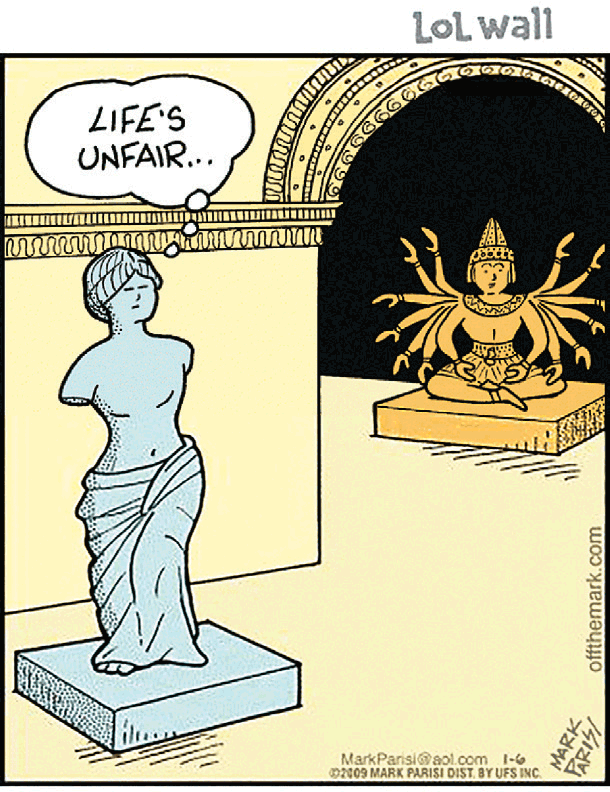
Farther along we’ll know all about it, Farther along we’ll understand why;
Cheer up, my brother, live in the sunshine, We’ll understand it all by and by.
Solomon notes in verse 13 that it is only a matter of time before the wicked will be punished.
“But it will not be well with the wicked; nor will he prolong his days, which are as a shadow, because he does not fear before God.”
- In verse 15, Solomon concludes that life should be lived with the enjoyment and blessing of God. His reference is not to “loose living,” but to enjoying the rewards of honest work and Godly leadership. It can be accomplished when one accepts that God’s purpose is sometimes a mystery.
Please remember: “And we know that all things work together for good to those who love God, to those who are the called according to His purpose” (Romans 8:28, KJV).
Part 11: Originally published in the February 2021 Levitt Letter
Live Life with Gusto: Ecclesiastes 9
Throughout our study in Ecclesiastes, Solomon has often projected a dim view of life. One would think that Solomon had given up on “life under the sun.” In chapter 9, he looks at life with the wisdom we have come to expect. He concludes that life will be unpredictable, but that all of us should embrace life to its fullest, making every moment count for the Kingdom.
Let’s listen in on Solomon’s pearls of wisdom as he reveals life’s challenges that are common to all, and then encourages his readers to live life with gusto.
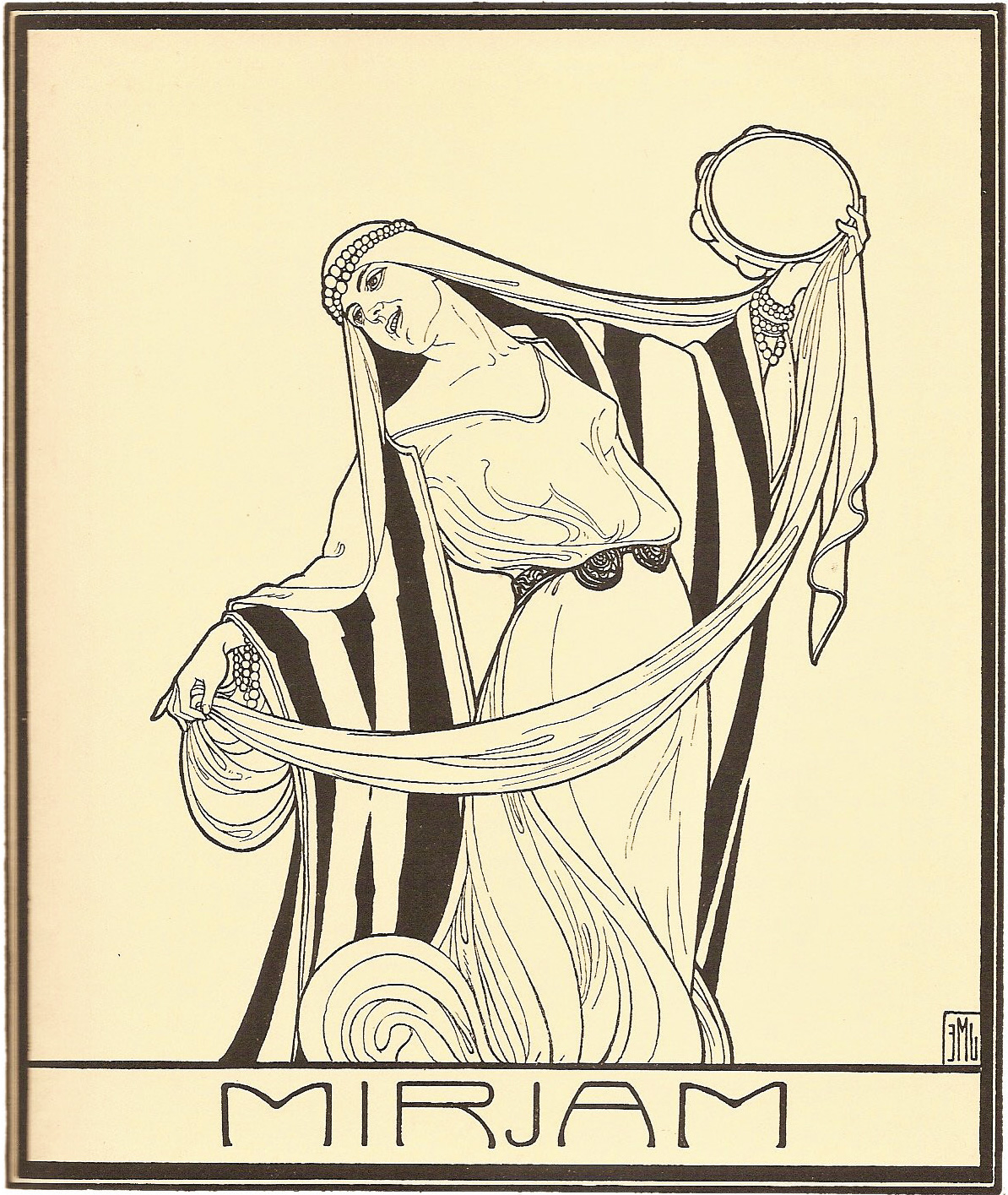
Trust God — He is Sovereign (9:1)
In the first verse of this chapter, Solomon declares that people are not the masters of their own fate. Every person, Believer* and non-believer, is subject to the sovereign will of God. The term “sovereign” has been used several times in our study of Ecclesiastes, so an example will aid understanding. Our sovereign God is King and Supreme Ruler over the entire Universe, and our lives are in His hands.
It is encouraging to know that nothing is out of His control. When all seems lost, remember that God is on your side. He really does care.
Life has Challenges for Everyone (9:2–6)
Solomon has observed and recorded that all people, regardless of their station in life, will one day come to the conclusion of life and enter eternity. It doesn’t matter if a person is righteous or unrighteous, clean or unclean (ritually), or among those who offer sacrifices or those who don’t. All answer to a Holy and Sovereign God. The main question is where one will spend eternity. Will it be in the presence of Yeshua, our Messiah, or with the great liar and deceiver in endless suffering?
I pause from Solomon’s writings to appeal personally: If you have never given your eternal destiny to Yeshua, now is the time! If you have, then you have been sealed by His Holy Spirit (2 Corinthians 1:22) and now await being “caught up” (Raptured) to forever be with your Lord.

Back to our study. Let’s look at what Solomon says in verse 9:4a: “But to him who is joined to all the living there is hope” (emphasis mine). Solomon is encouraging his readers to dream big dreams and set huge goals, because there is hope and “God has already approved your works” (7b). Solomon’s statement should offer encouragement in a day when it seems, for many people, that all hope is lost. It is an offer we all need.
Life is to be Celebrated (9:7–10)
Solomon leaves depressing reminders about death and missed opportunities and now turns his focus to living life to its fullest. He reminds us to enjoy all things in moderation; food, drink, nice clothes, and soothing oils.
Solomon’s list includes enjoying life with your wife (or women, your husband). In other words, enjoy your family, friends, work, food, and drink — all that God calls good.
Life is Unpredictable (9:11–12)
Solomon returns to the inequities of life. We might expect life to go in one direction, and then it takes an unexpected turn. He points out that possibility in 9:11:
“The race is not to the swift, nor the battle to the strong, [think Gideon’s army] nor bread to the wise, nor riches to men of understanding, nor favor to men of skill; but time and chance happen to them all.”

In 9:12, he illustrates his observations with two common examples:
- a fish unsuspectingly gets caught up in a net
- evil suddenly befalls and ensnares a man
Both scenarios depict how quickly everything can change — how unpredictable life can be. I am reminded of a practical, yet philosophical, line in the 1994 movie Forrest Gump, when Forrest explains, “Life is like a box of chocolates. You never know what you’re gonna get.”
Life is Complicated by Fools (9:13–17)
These verses are trying to tell us that wisdom often goes unappreciated. Solomon was amazed that someone with enough wisdom to save a city was not recognized for his courage and military acumen. How did this poor man save the city? We are not told. However, as is often the case, in the quietness of the moment, wisdom wins; but the person who yells the loudest gets the attention.
Solomon concludes this chapter with the warning in verse 18 that a lot of wise goodness can be nullified by the foolishness of one person. Or, to put it another way: Sin always affects innocent people.
Part 12: Originally published in the March 2021 Levitt Letter
The Counsel from Wisdom: Ecclesiastes 10
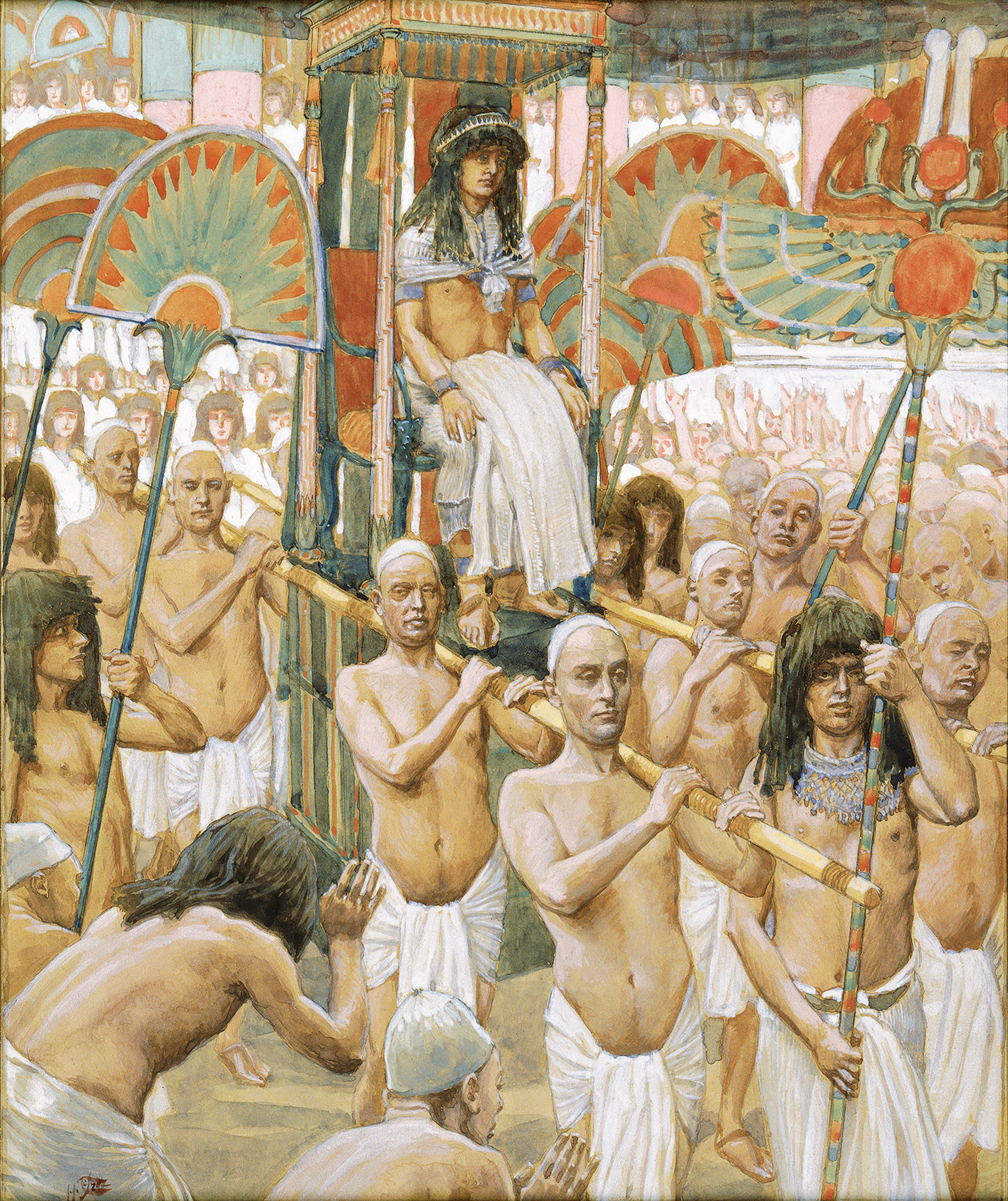
We embark on one of those chapters in the Bible that is difficult to understand. Bible students and commentators would prefer to avoid Ecclesiastes 10. But to be consistent in our study, we cannot set it aside for convenience. The language that Solomon uses throughout this chapter includes a lot of symbolism but is poignant to his readers. Solomon reveals the wisdom of his life experiences and unpacks them as valuable life lessons.
1. Wisdom Wins the Day (10:1–4)
If you’ve ever been on a picnic, you understand that a fly in your food ruins your appetite for that particular dish. Because this chapter is written in symbolic language, we can understand that Solomon isn’t talking about dead flies in ointment, but one foolish act that can ruin a person’s testimony and reputation.
This example comes to mind: When making a three-egg omelet, if the third egg added is putrid, it ruins the whole omelet. (Cooking tip: Break each egg into a separate dish before adding, just in case.)
Foolishness or folly, we might say, doesn’t stop to consider the consequences of the actions. A fool rushes to the excitement without carefully assessing the situation. A fool lives by his or her own standards without regard to what God says. It’s little wonder that the Bible states, “The fool has said in his heart there is no God” (Psalm 14:1a).
The terms “right” and “left” in verse two have nothing to do with politics but with direction. The symbolism is that a wise man goes in one direction, while a fool goes the opposite way. Then Solomon gives excellent advice to the hot-tempered: The best way to deal with an obstinate employer (“ruler” is his term) is not to resign, but to walk through it, knowing that wisdom will bring protection and direction.
The example of Joseph comes to mind. You remember the story from Genesis 37–47. Joseph was sold into slavery by his brothers and, in time, was made the head of household by Potiphar. He was placed in a great position because of his faithfulness, his continued walking with God.

2. Wisdom Calls for a Life of Humility (10:5–7)
Solomon had observed that rulers often assigned positions, not based on qualifications but as knee-jerk decisions. He doesn’t give a specific example, but his reference is very clear. He had witnessed fools occupying high positions, while the qualified were pushed aside as servants. He noted that some who were irresponsible were made commanders on horseback. He makes a point to say in verse 5, “There is an evil I have seen under the sun.”
3. Common Sense Examples (10:8–10)
“He who digs a pit will fall into it, and whoever breaks through a wall will be bitten by a serpent. He who quarries stones may be hurt by them, and he who splits wood may be endangered by it. If the ax is dull, and one does not sharpen the edge, then he must use more strength; but wisdom brings success.”
What is Solomon saying? He advises wisdom in everyday life. A foolish person will carelessly dig and fall into a pit; break through a wall and be bitten by vipers hiding there, or be hurt while quarrying stones or splitting wood with a dull ax.
A wise person will proceed with caution at every turn and experience safe success. So, if wisdom is the key to success, where do we find it? James 1:5, “If any of you lacks wisdom, let him ask of God, who gives to all liberally and without reproach, and it will be given to him.”
4. The Folly of a Fool (10:11–20)
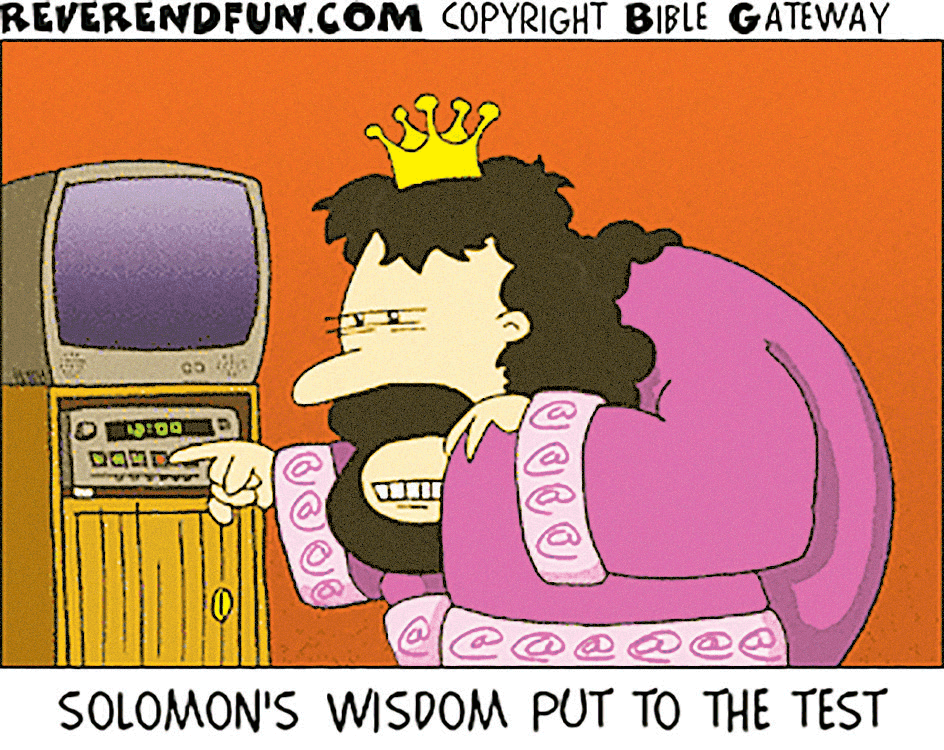
Solomon points out in verses 11–15 that a fool would rather hear himself talk than listen to wise counsel. A foolish person will dominate the conversation without regard for the truth or even common sense. As verse 15a states, “The labor of fools wearies them.” Foolish people make everything complicated for themselves and others. They can’t even follow simple instructions on how to enter a city.
In the final analysis, Solomon contrasts the difference of wise leaders in the land to those who are incompetent and, in fact, lazy! Buildings decay and the house leaks while the leaders feast on good wine and food. They believe that “money answers everything.” Solomon counters that thinking in verse 17, “Blessed are you, O land, when your king is the son of nobles, and your princes feast at the proper time — for strength and not for drunkenness!”
Solomon concludes with a warning to not criticize leadership, even if we believe it is deserved. God will always have the final say and carry out judgment in His timing. 1
Part 13: Originally published in the April 2021 Levitt Letter
The Conclusion of the Matter: Ecclesiastes 11–12

If you have followed this study of Ecclesiastes from its beginning in the February 2020 Personal Letter, I applaud your determination to see it through to the end.
To conclude our study, we will cover chapters 11 and 12. In chapter 11, Solomon points out the need to embrace one’s work with determination. He then concludes chapter 11 and begins chapter 12 by advising his readers to begin their service to God in their youth.
Let’s look at what Paul wrote to Timothy, “Let no one despise your youth but be an example to the believers in word, in conduct, in love, in spirit, in faith, in purity” (1 Timothy 4:12). Good advice!
Now let’s look at Solomon’s final words of wisdom. At first it appears that Solomon contradicts himself regarding riches. In chapter 2, he described the emptiness that pleasure and wealth can bring. However, he knew that in everyday life, a living needed to be made. So, he set forth to give readers sage advice about how to best provide for their needs.
1. Be Wise in Your Trade (11:1–6)
Verses 1 and 2 have been interpreted in different ways. Some would say to cast your troubles onto the water and watch them sink, or cast off your past and remove it from your memory. But Solomon is giving advice to entrepreneurs to develop investments in seven or eight different options. He concludes verse 2 reasoning that one cannot know what evil lurks, or in other words, which investment may fail.
Next, Solomon encourages people in verses 3 and 4 to sow seed in the moment. It may rain, or it may not, but waiting is wasting time. His advice in this instance gets to the heart of the matter concerning decisions. Solomon knew that if farmers hesitated to plant, their livelihood would be in peril, which would affect everyone who depended on the crops.
In verses 5 and 6, Solomon impresses upon his readers to sow their seed throughout the day. In other words, stay busy in the daylight hours. They could not know which seed will take hold, no more than they know the direction of the wind, or the formation of a child in the womb.
2. Seek God in Your Youth (11:9–10)
Solomon concludes chapter 11 with the counsel to seek God in your youth. In these final verses, he cautions the young in verse 9 that they can chase everything their hearts desire and what appeals to them that looks good. But, at the end of the verse Solomon gives a warning, “But know that for all these God will bring you into judgment.”
3. Commit to God before Old Age (12:1)

Solomon now presses the issue to remember God early in life. He urges his readers to keep His laws and serve Him consistently, because God is the Creator, and everyone’s life is in His hands. That can be both comforting and frightening, depending on how a person decides to live his or her life.
4. Face the Facts of Aging (12:2–7)
Verse 2 The Red Green Show in which the host of the show (Mr. Red Green) would have a segment where he cautions men who are getting older that they should no longer say, “Watch this.”
Verses 3–5 list an array of signs of failing health. When you read the verses in your favorite Bible translation, you will see the picture that Solomon is painting about growing old.
“Keepers of the house tremble” — A once sturdy and stalwart person is now unstable and shaky.
“Grinders cease” — The loss of teeth causes chewing to be difficult.
“Windows grow dim” — Eyesight is failing.
“Doors are shut in the street” — This could represent the mouth drawn in when closed because of the loss of teeth.
“When one rises at the sound of a bird” — This indicates the inability to sleep through the night. A person is awakened by the slightest sounds.
“The daughters of music brought low” — The singing voice has faded.
“Afraid of height” — One becomes unstable and very cautious.
“Almond tree blossoms” — The obvious interpretation is the graying of hair.
“The grasshopper is a burden” — It takes longer to move any distance.
“Desire fails” — This could be taken as sexual, or the lack of pleasure in anything.
Many of the maladies mentioned in these verses have been mitigated by modern western medicine. But remember, this is Solomon’s description of his time. There was little to be done to combat the normal aging process in his day.
5. Face the Fact of Death (12:6–8)
Solomon returns again to the fact that people die. We all have been reminded of that fact with the tragic number of deaths during the coronavirus pandemic. Verses 6 to 8 probably picture a life that is poured out. The “silver cord” has been cut that holds the “golden bowl,” which could be some type of lamp, or perhaps a menorah. The lamp breaks and all the oil spills out, and with that the light goes out.
6. Solomon’s Conclusion (12:9–14)
Solomon points out that his purpose was to offer wise counsel to the people. He compared his words of wisdom to an ox goad, which is a long sharp stick used to drive cattle and oxen. He also referred to them as “well-driven nails,” or we could say he nailed down the basic principles of life.
Solomon’s final words on the matter are found in the last two verses: “Let us hear the conclusion of the whole matter: Fear God and keep His commandments, for this is man’s all. For God will bring every work into judgment. Including every secret thing. Whether good or evil.”
Copyright © 2020, 2021 Zola Levitt Ministries
